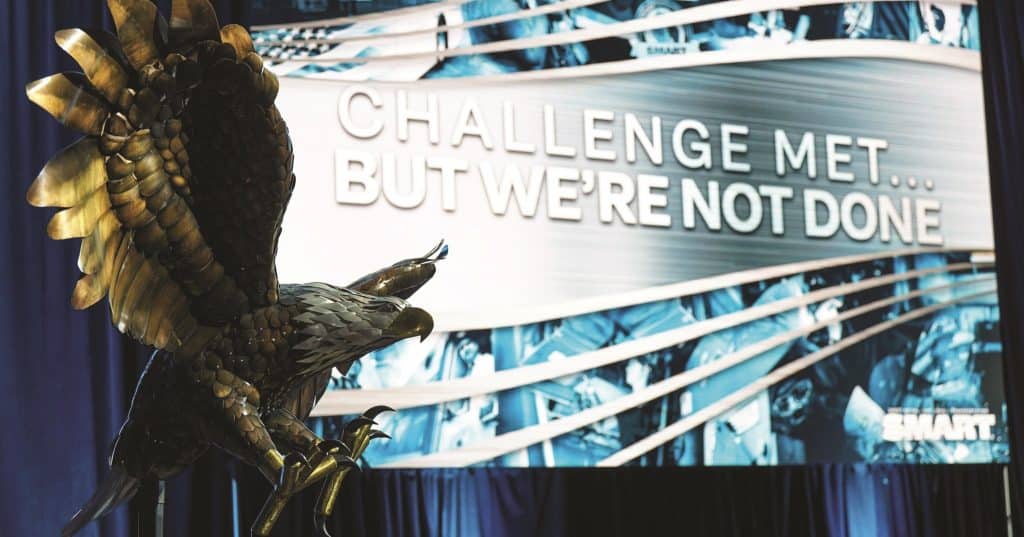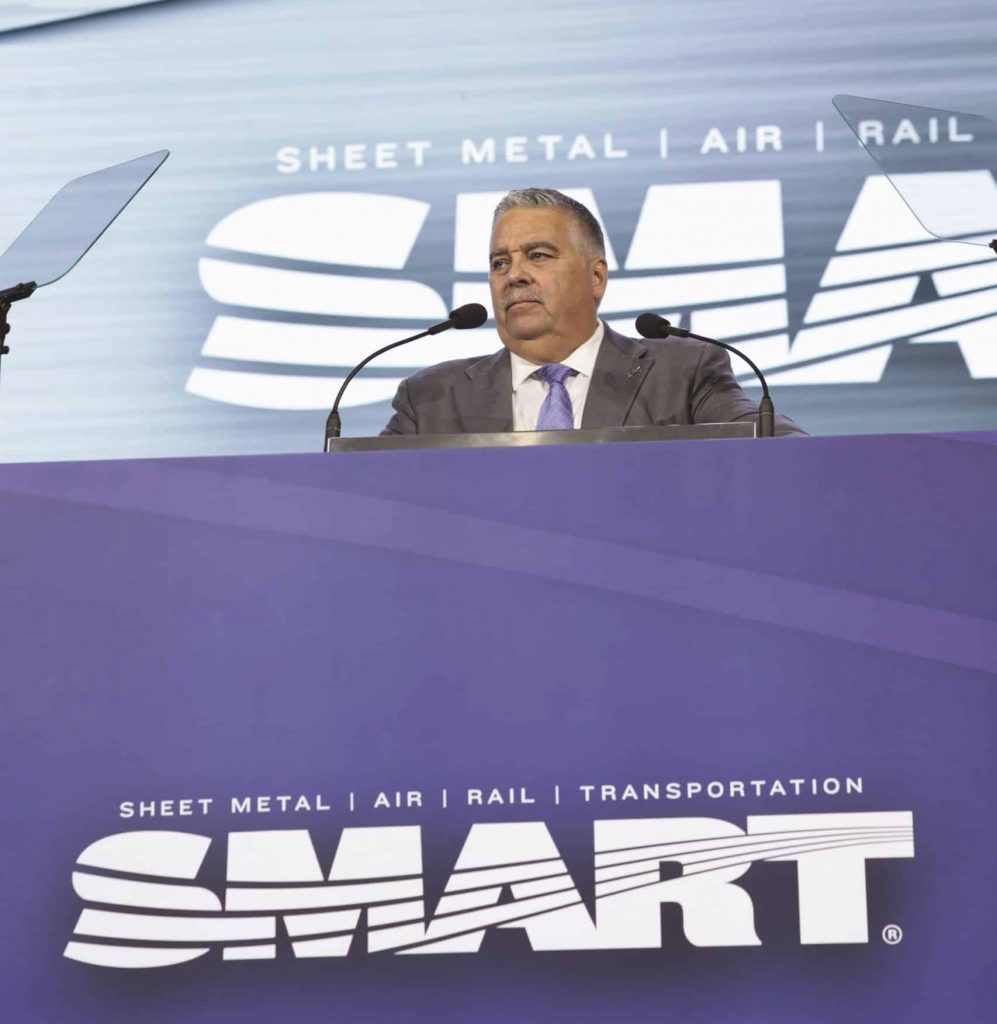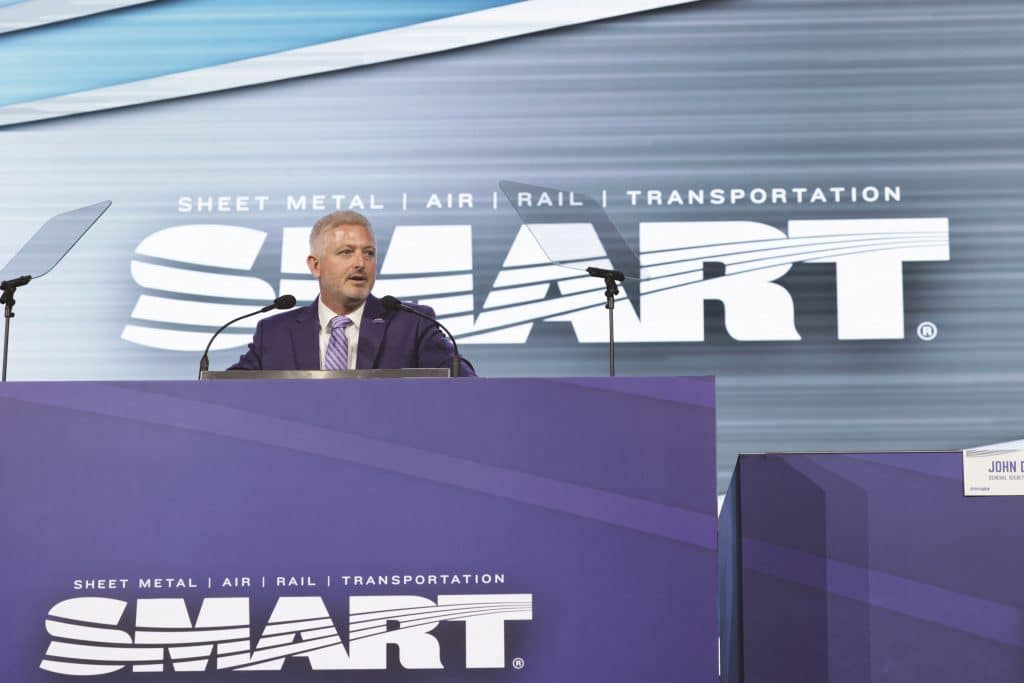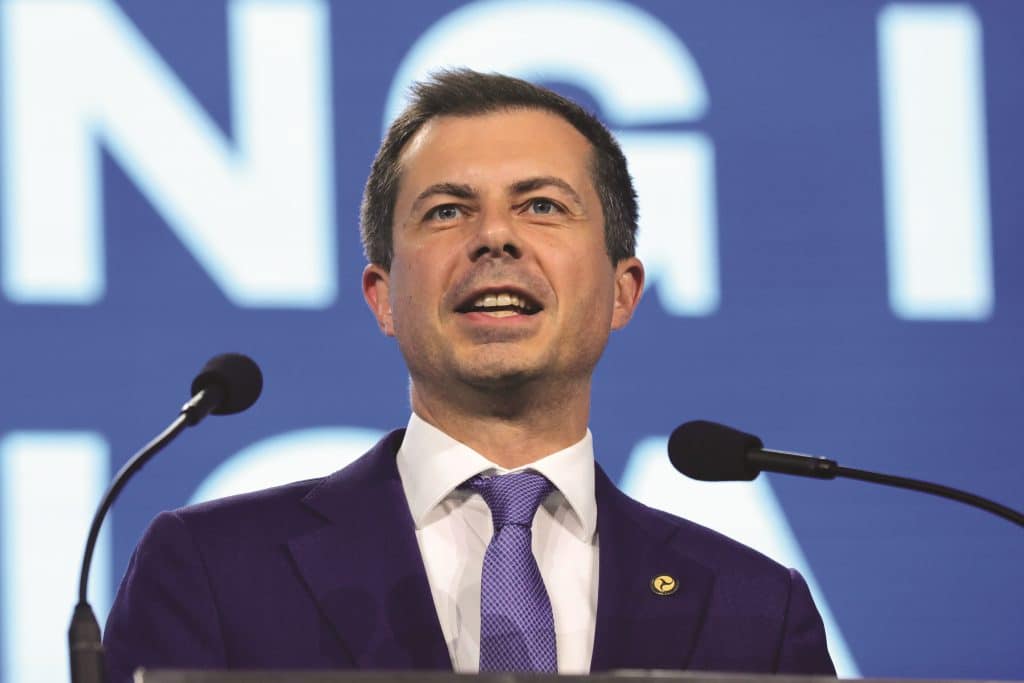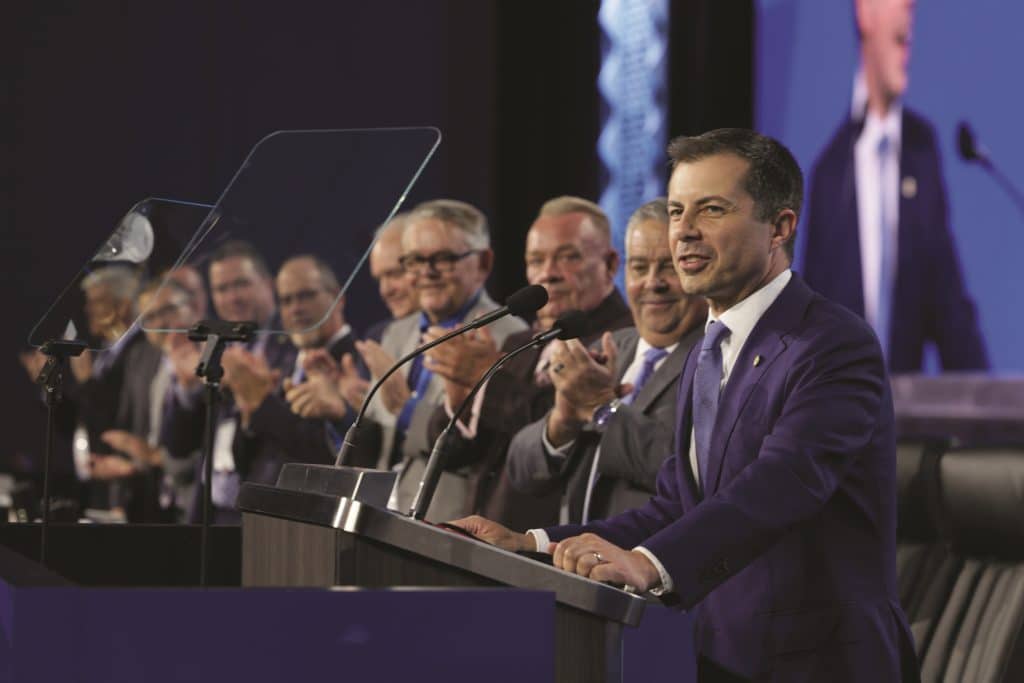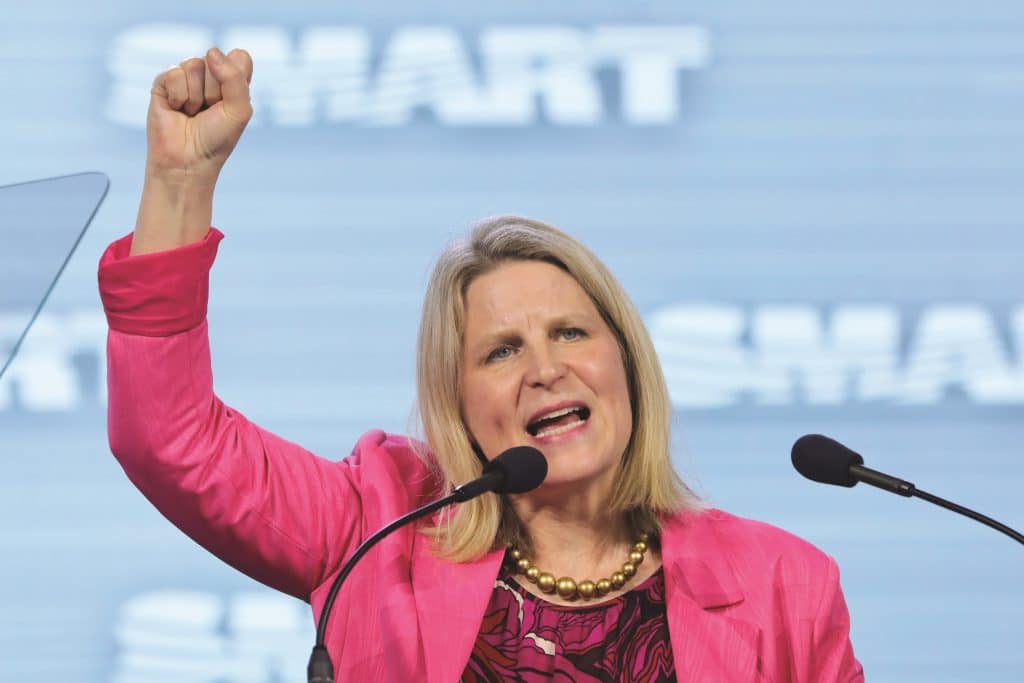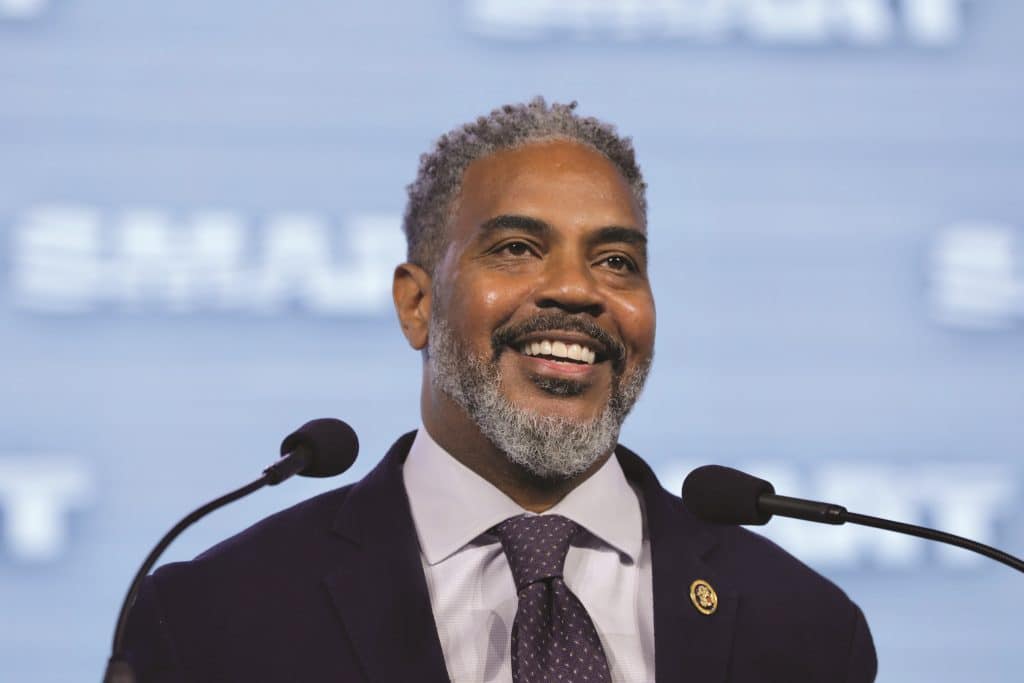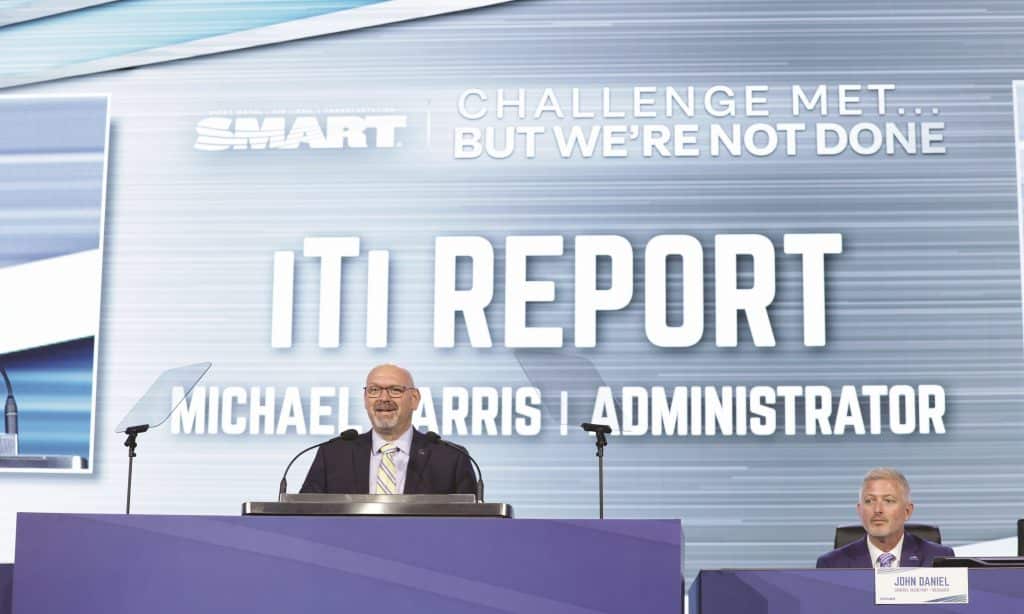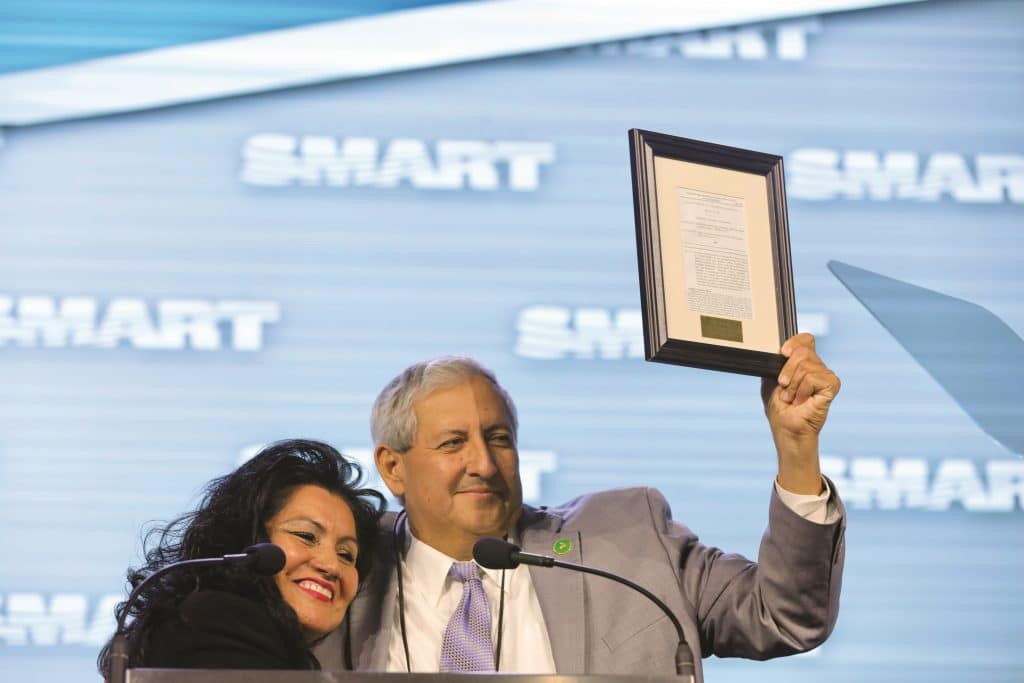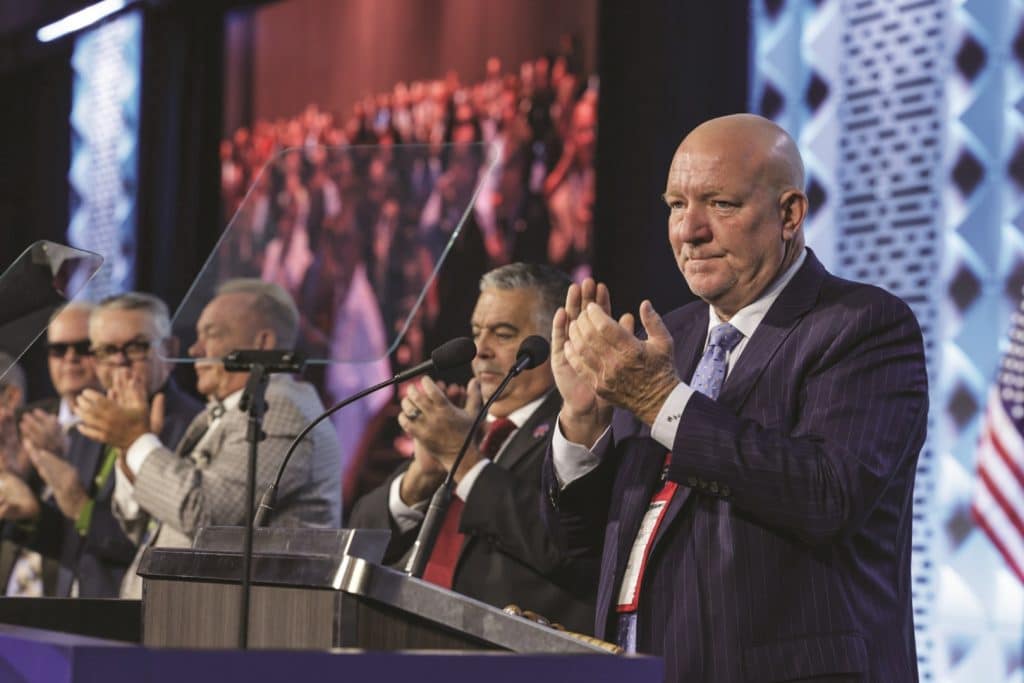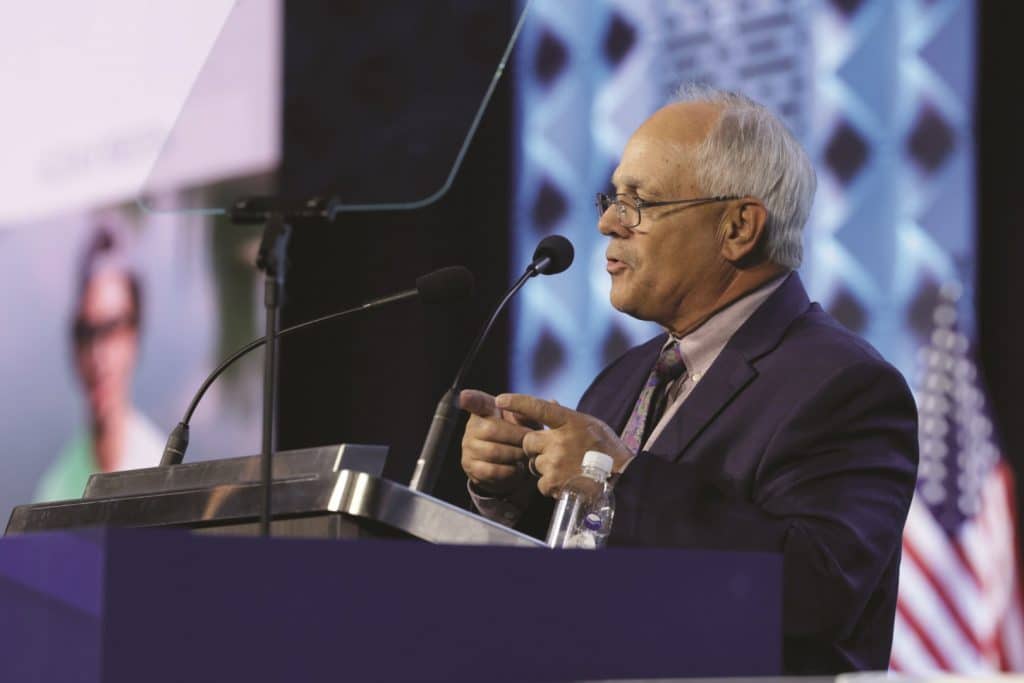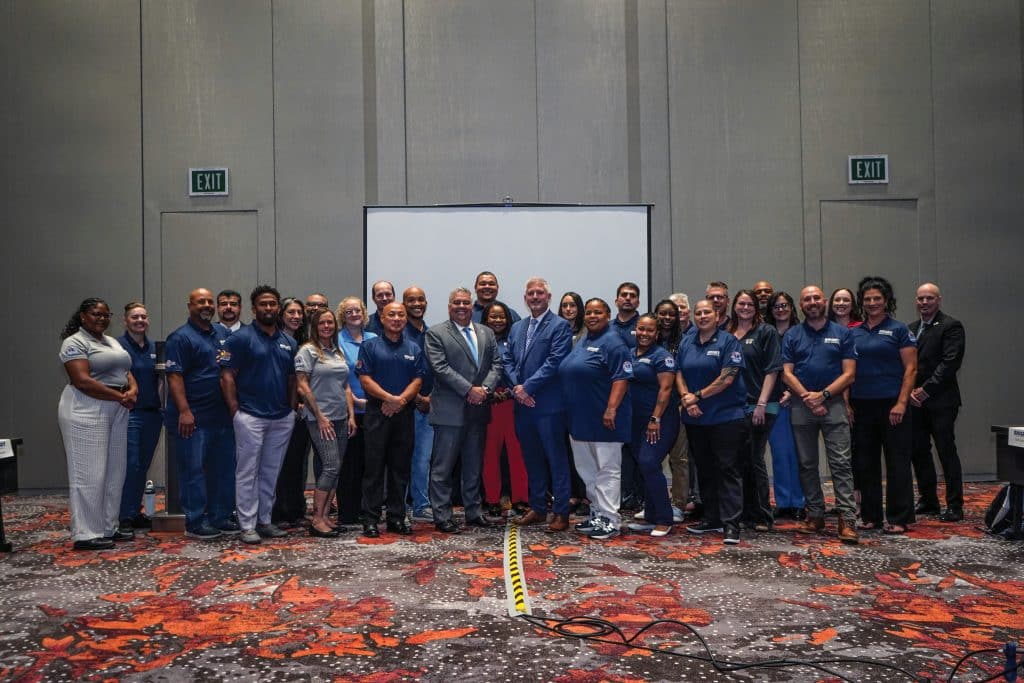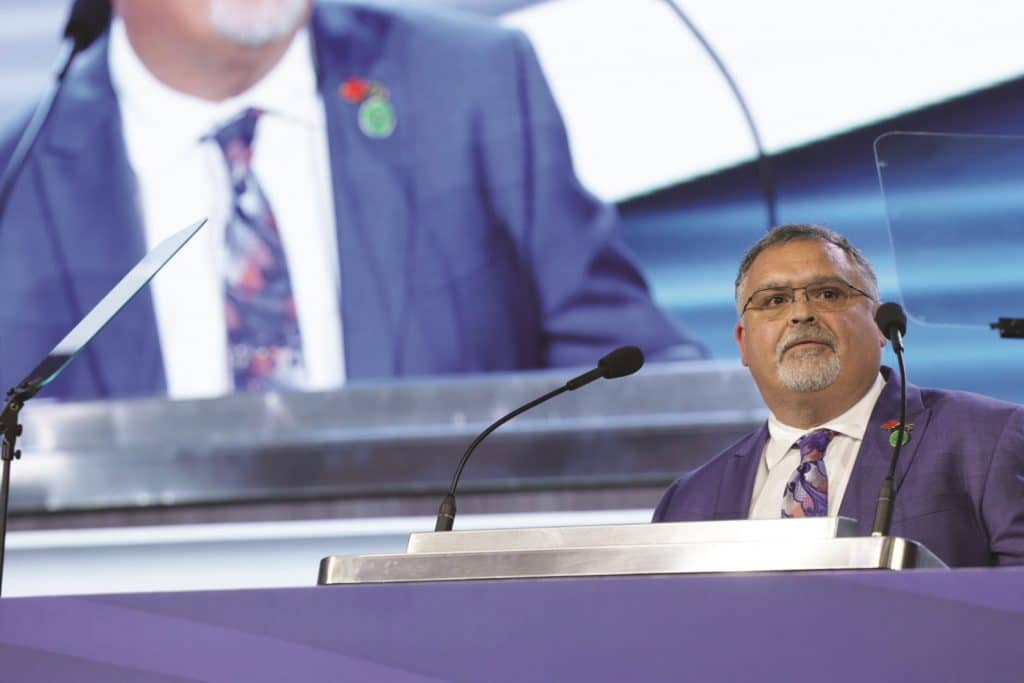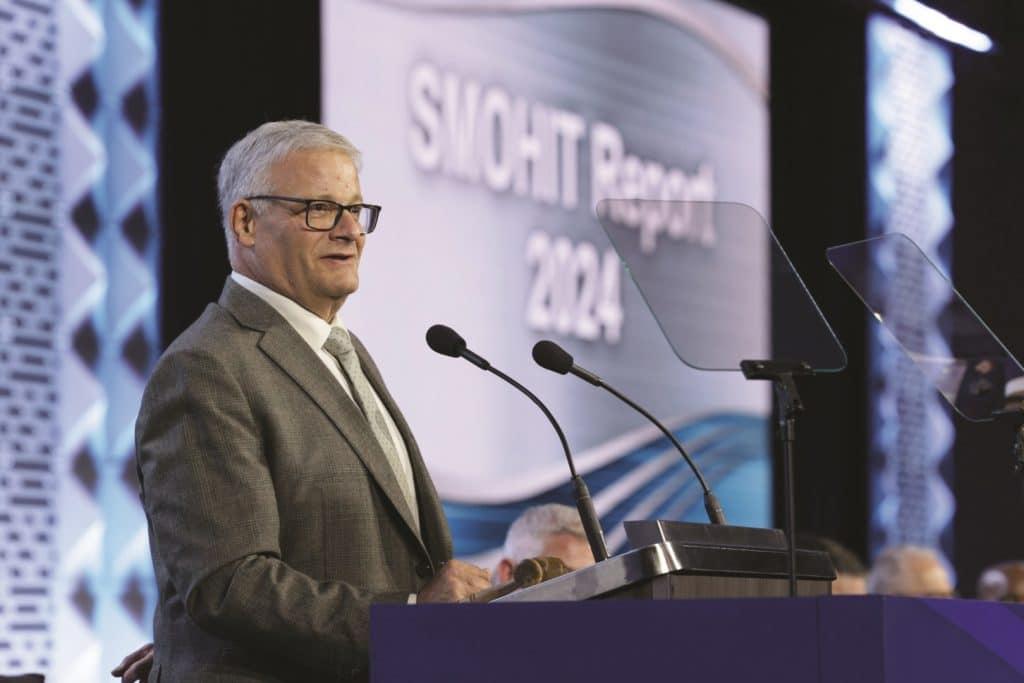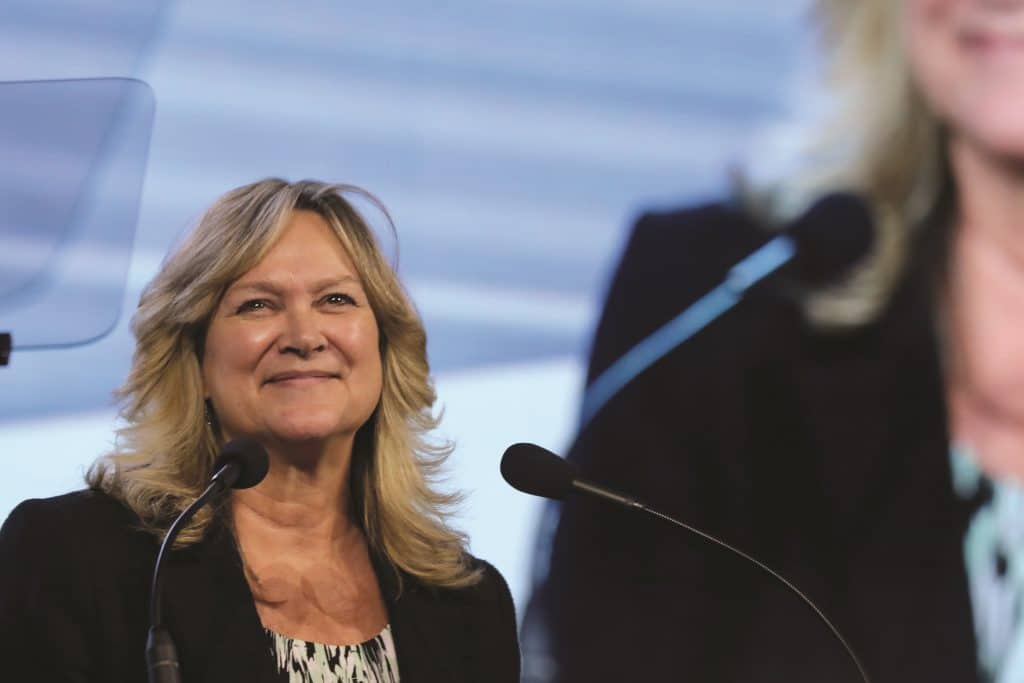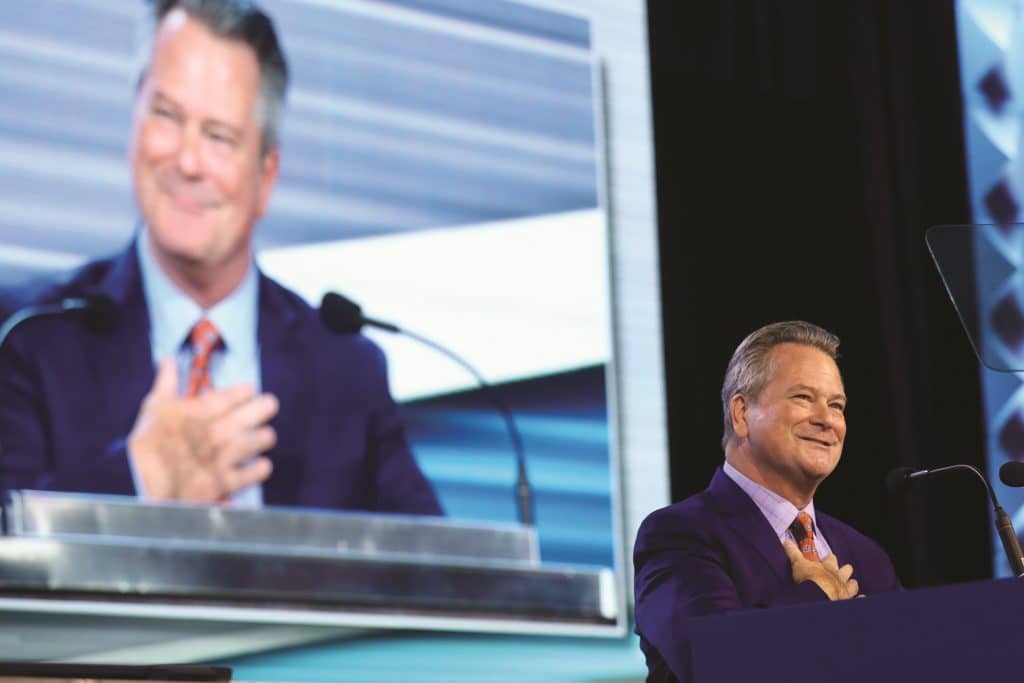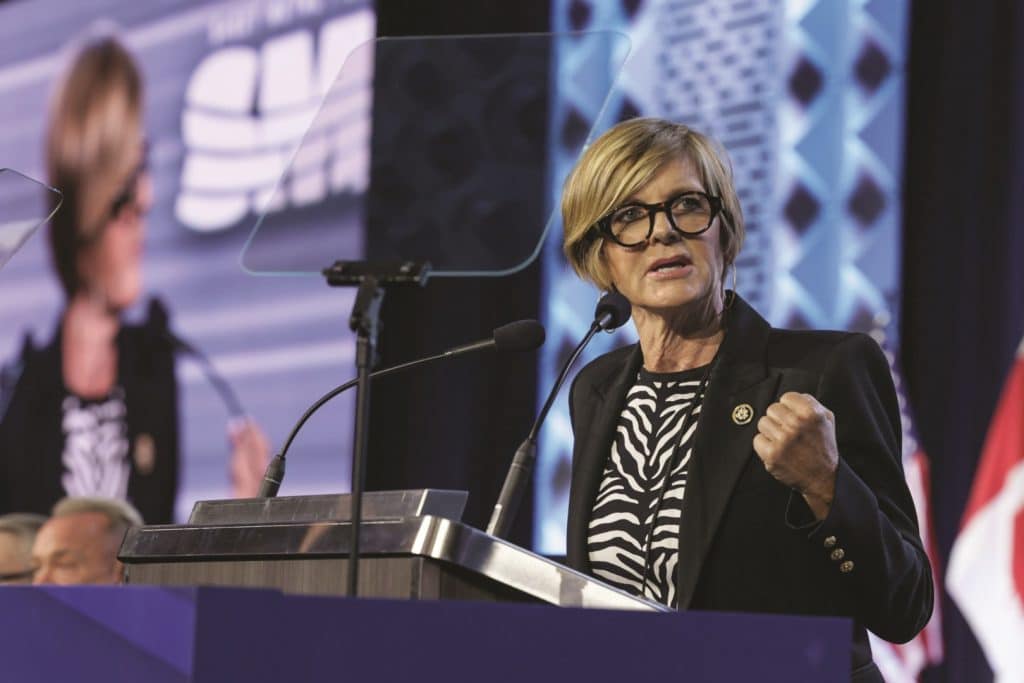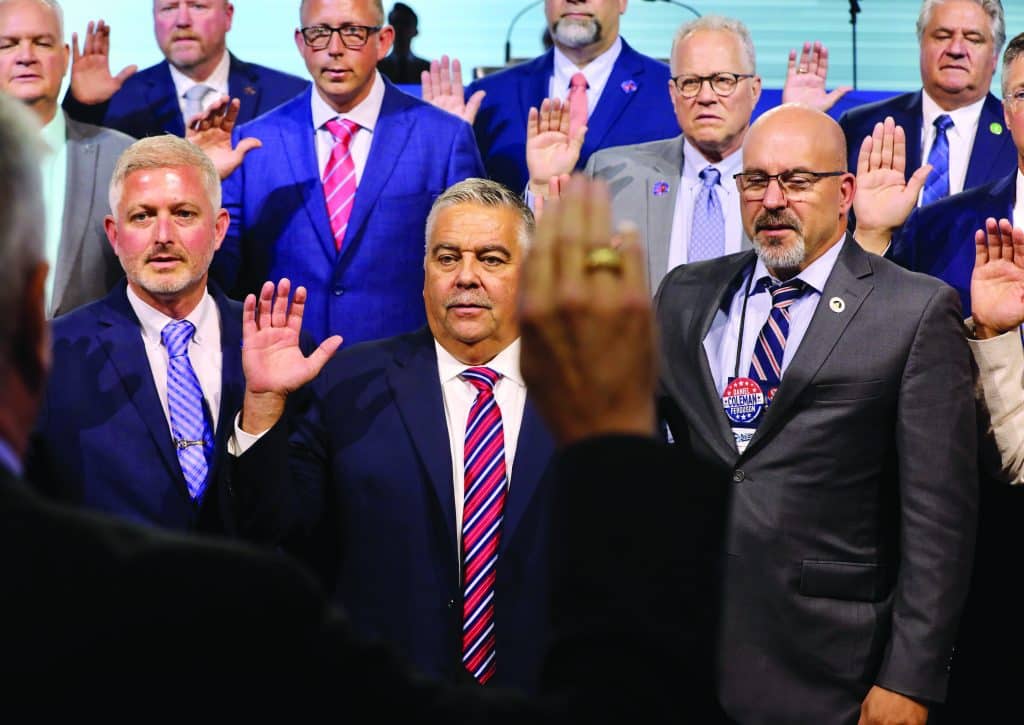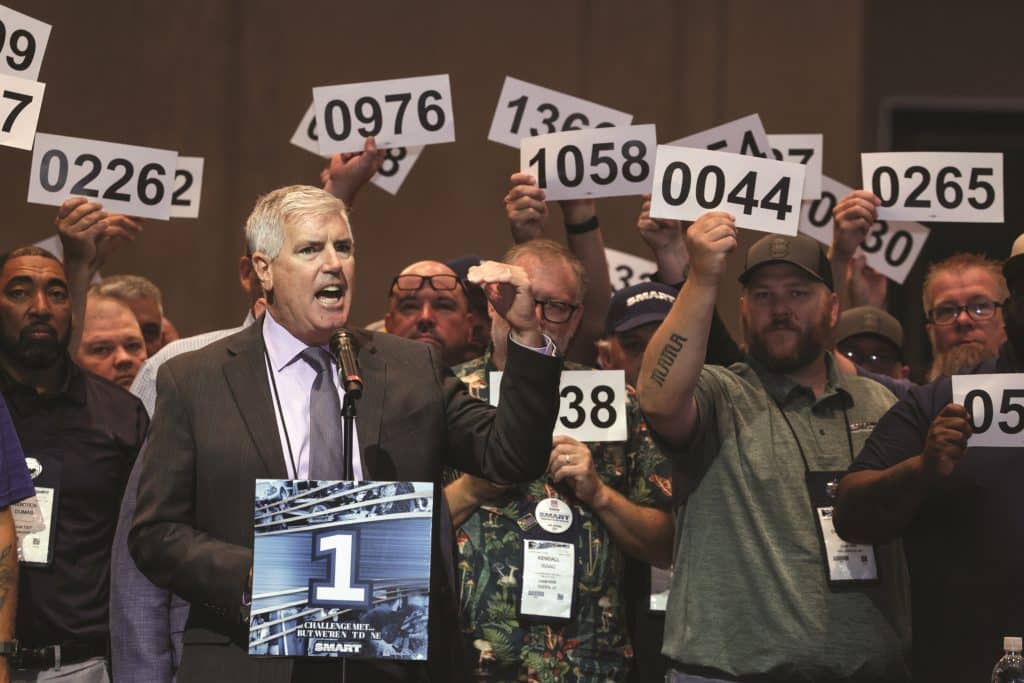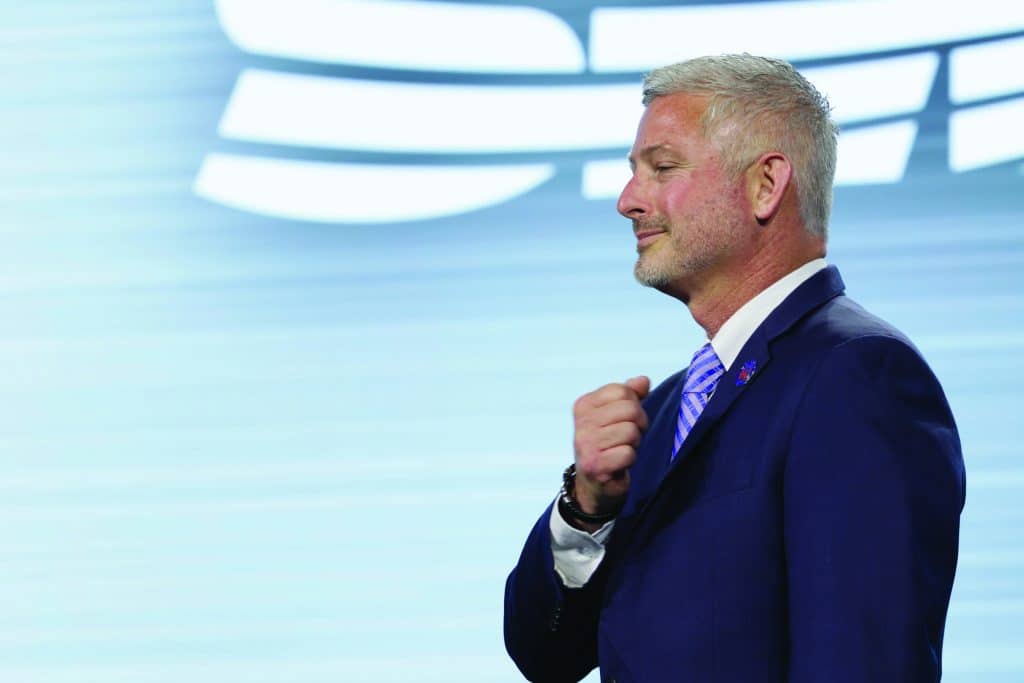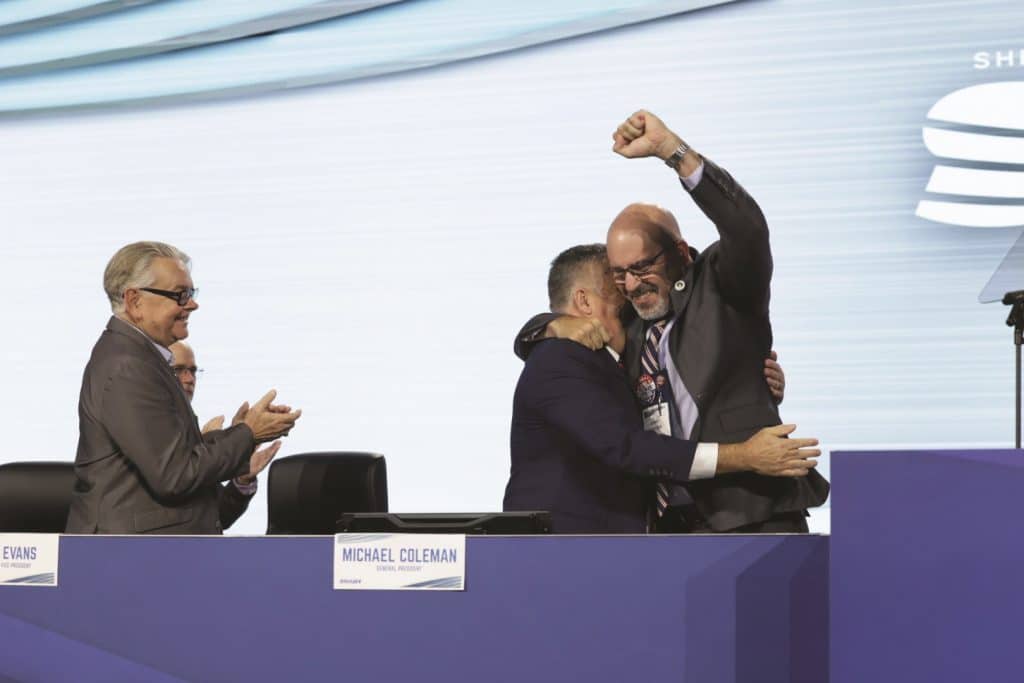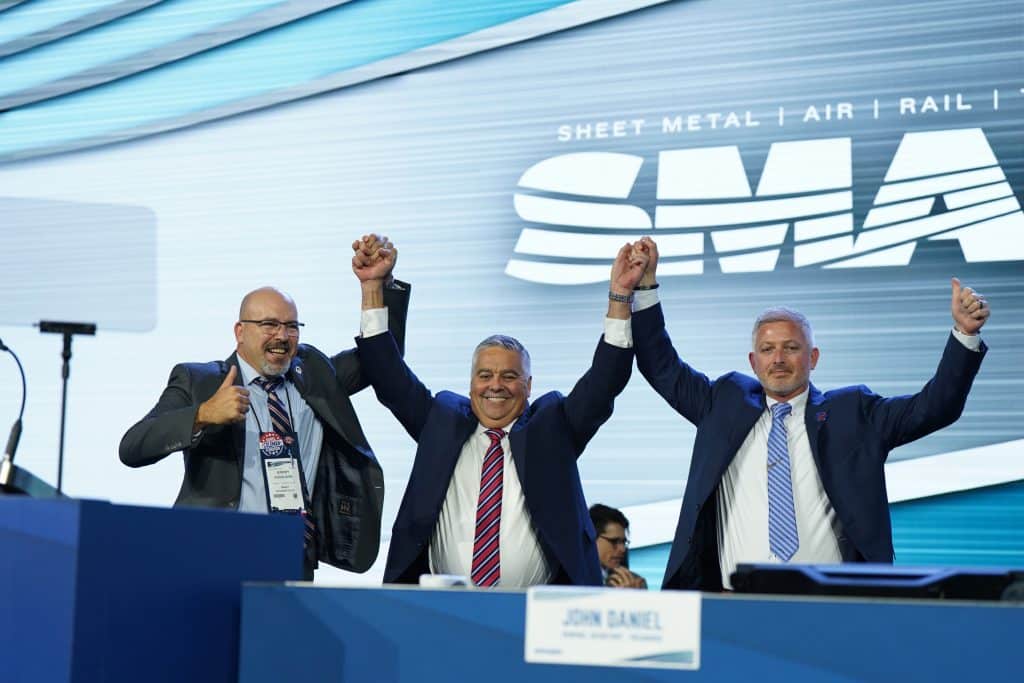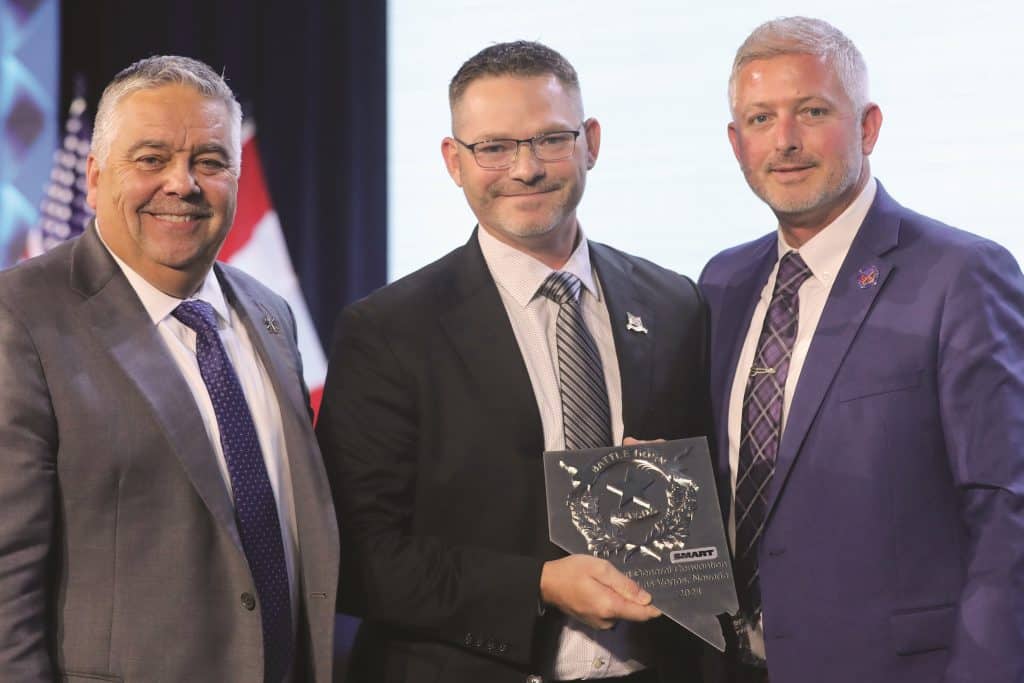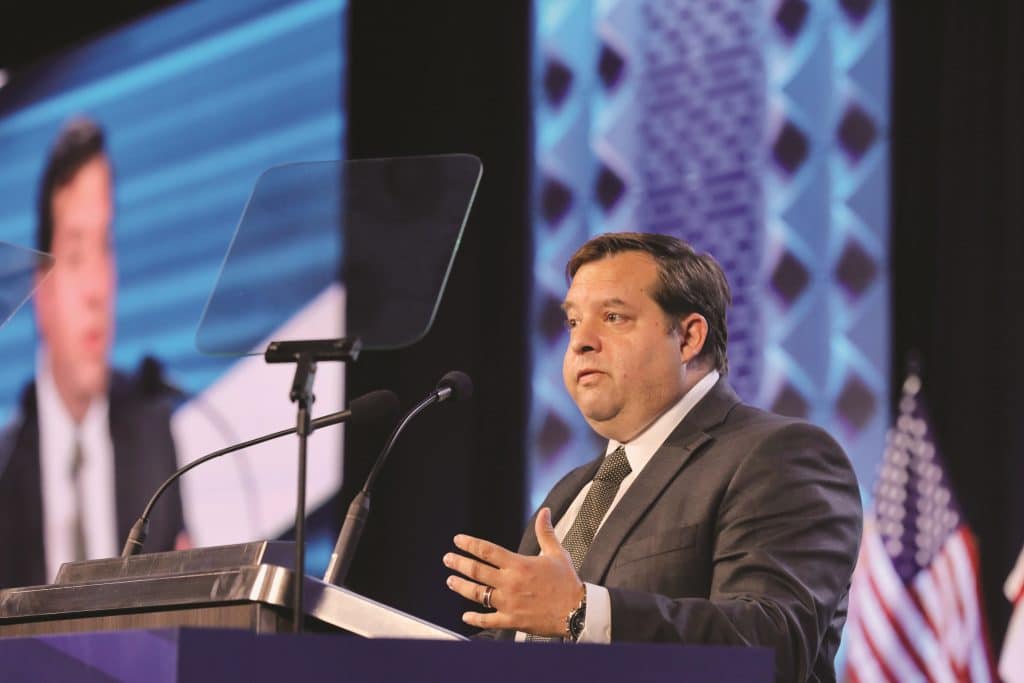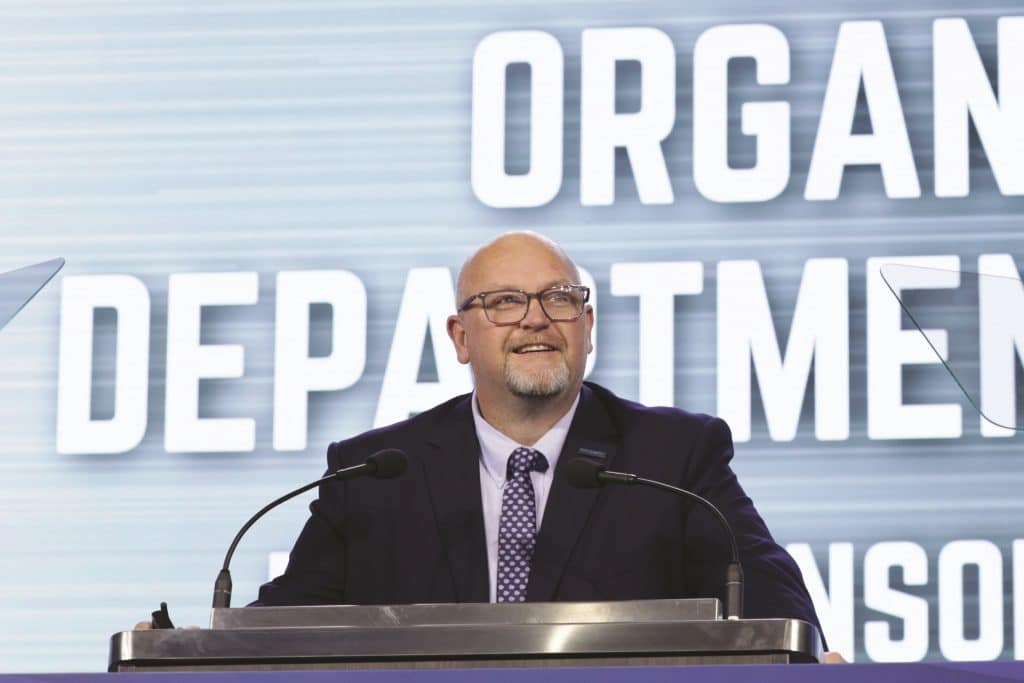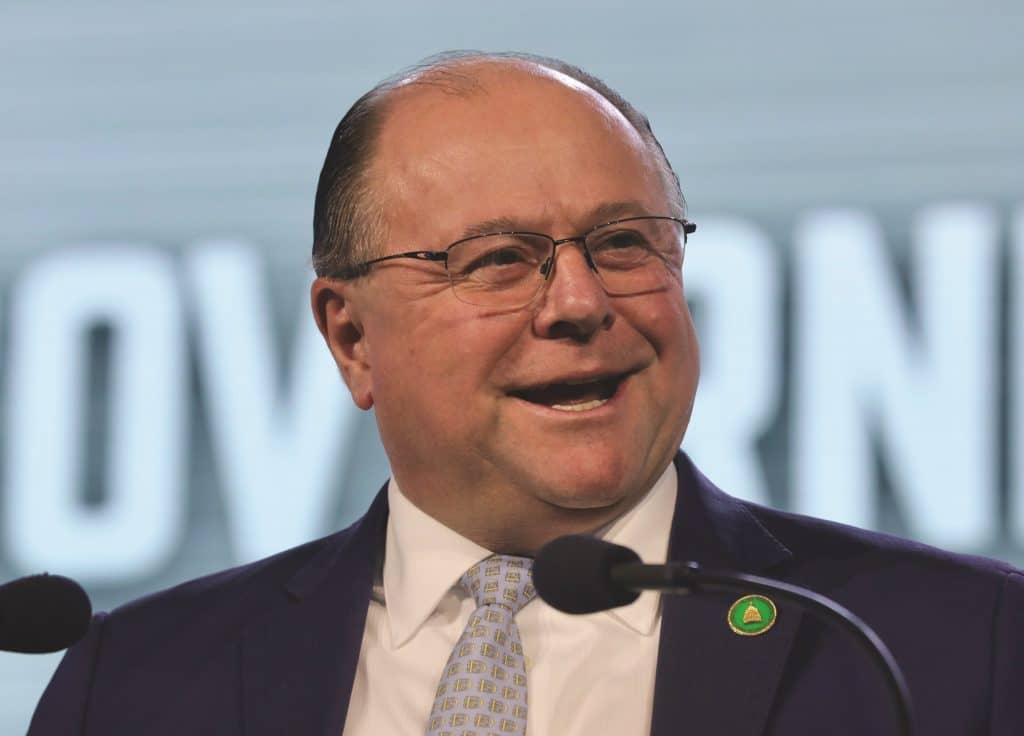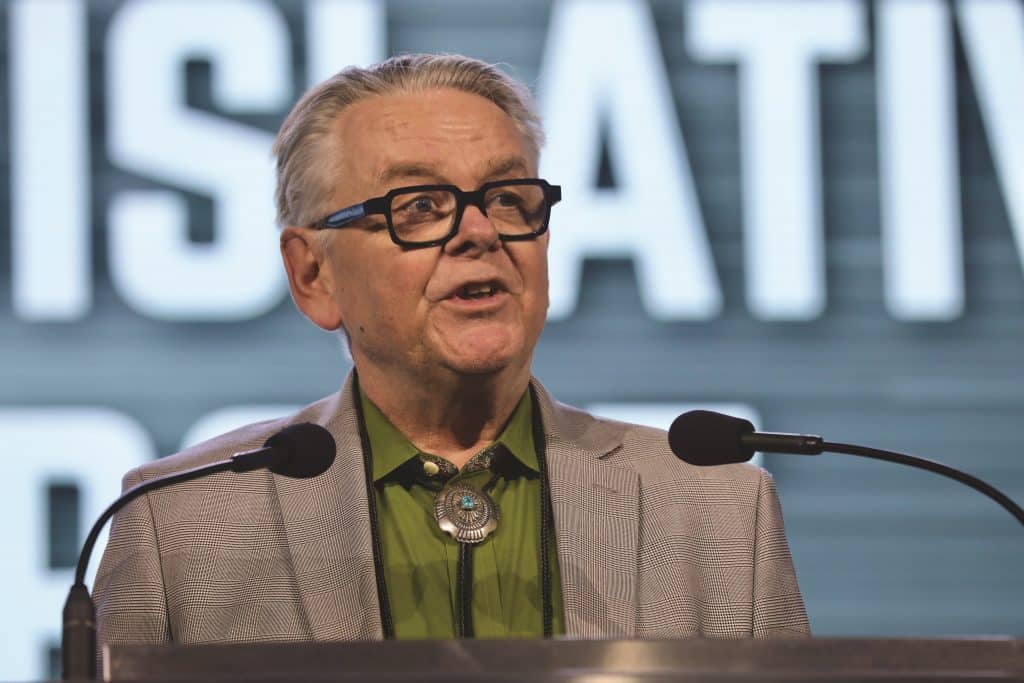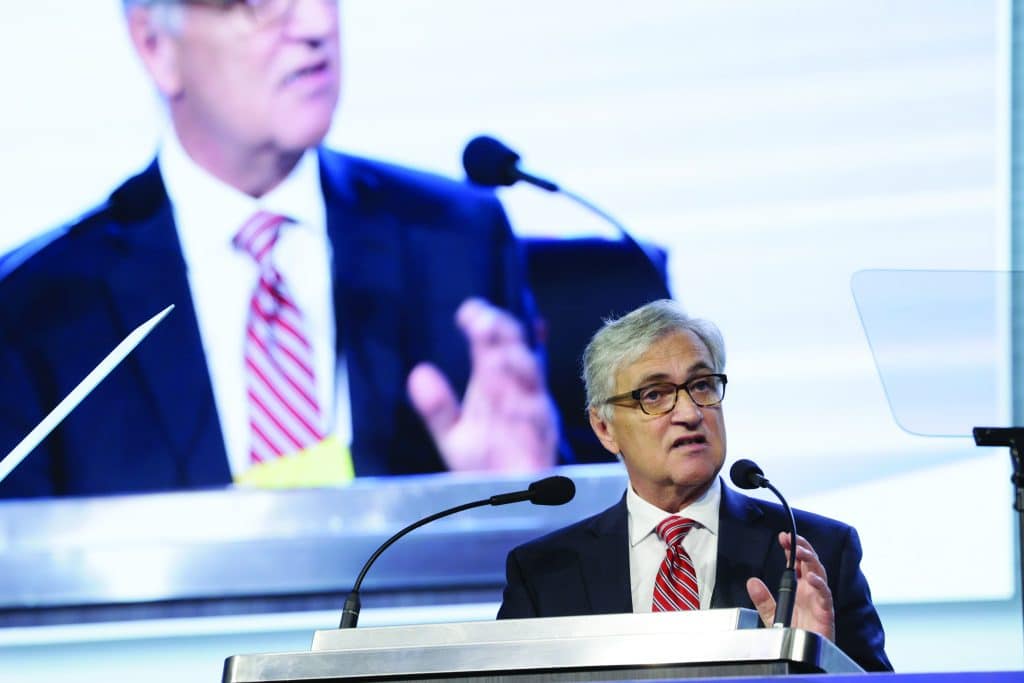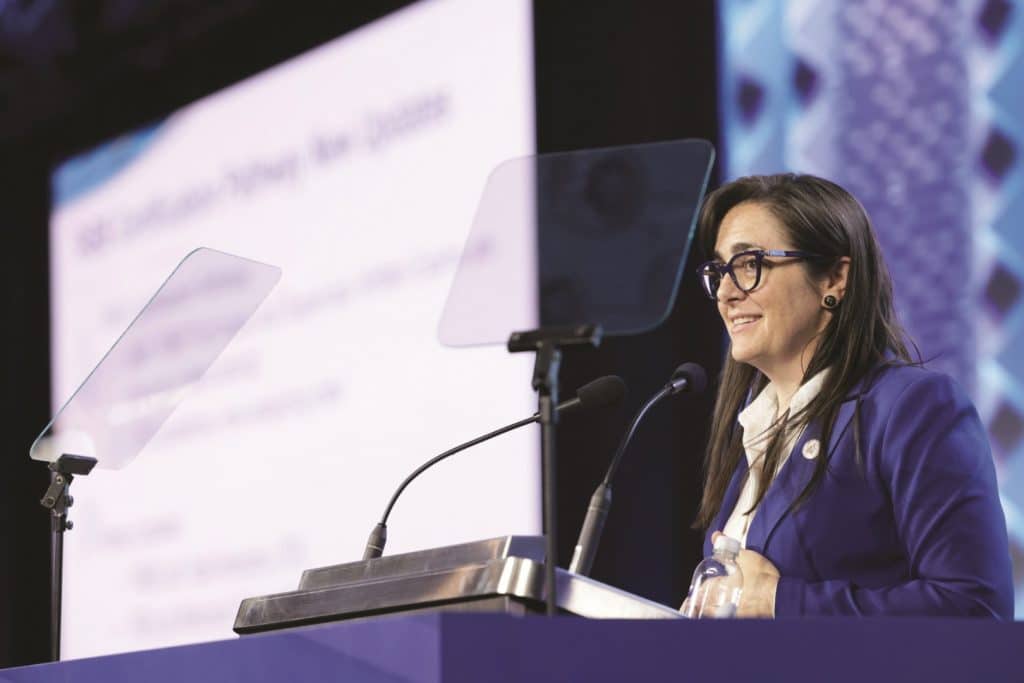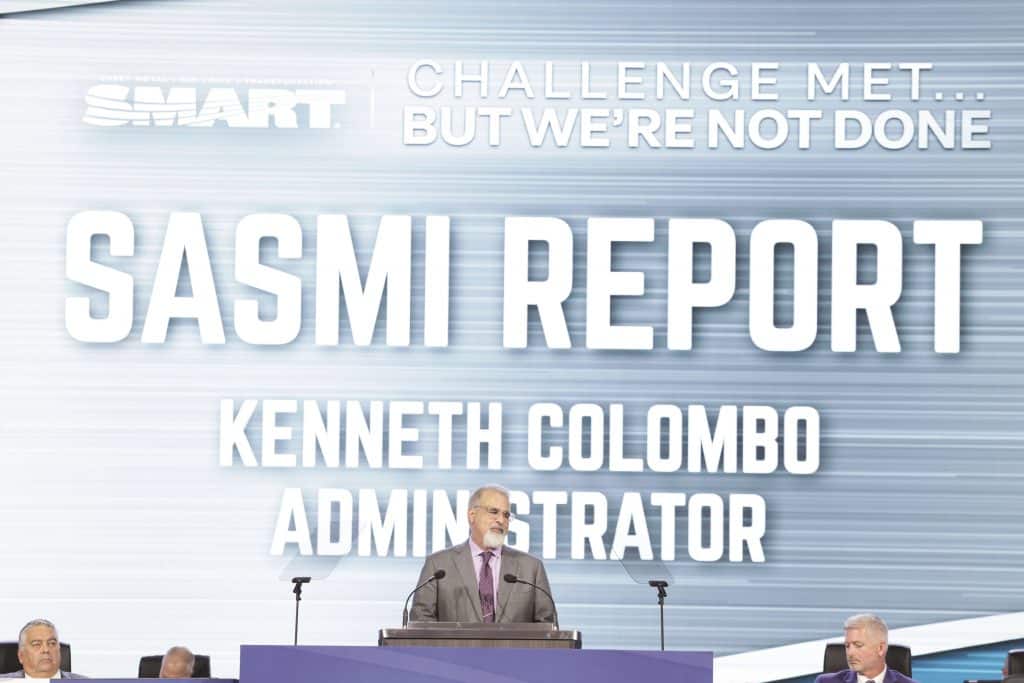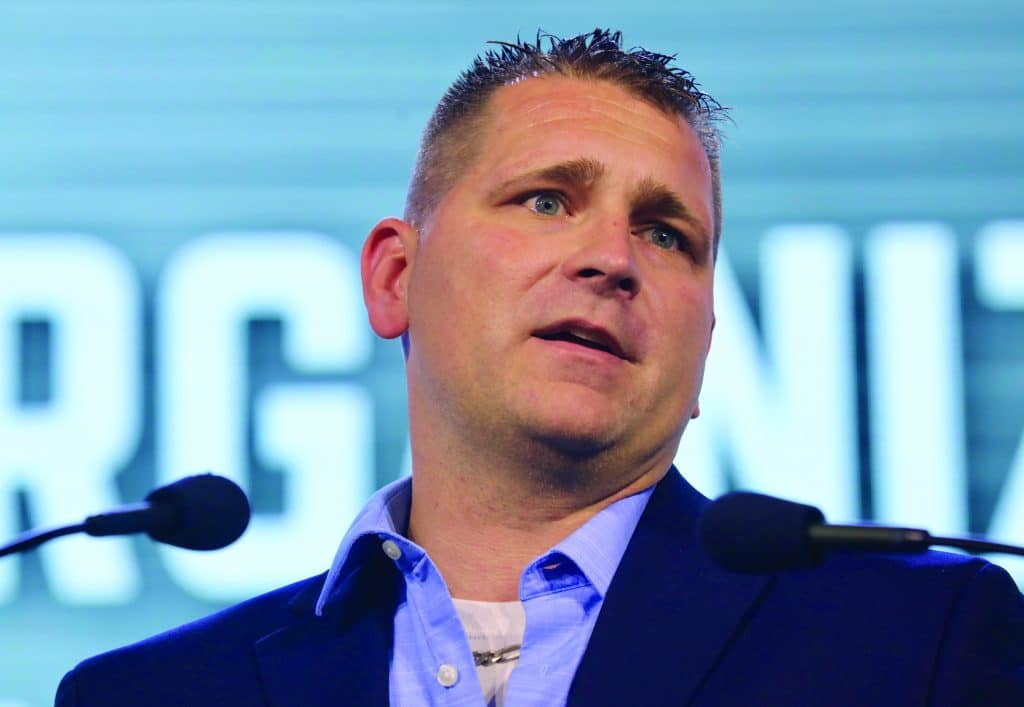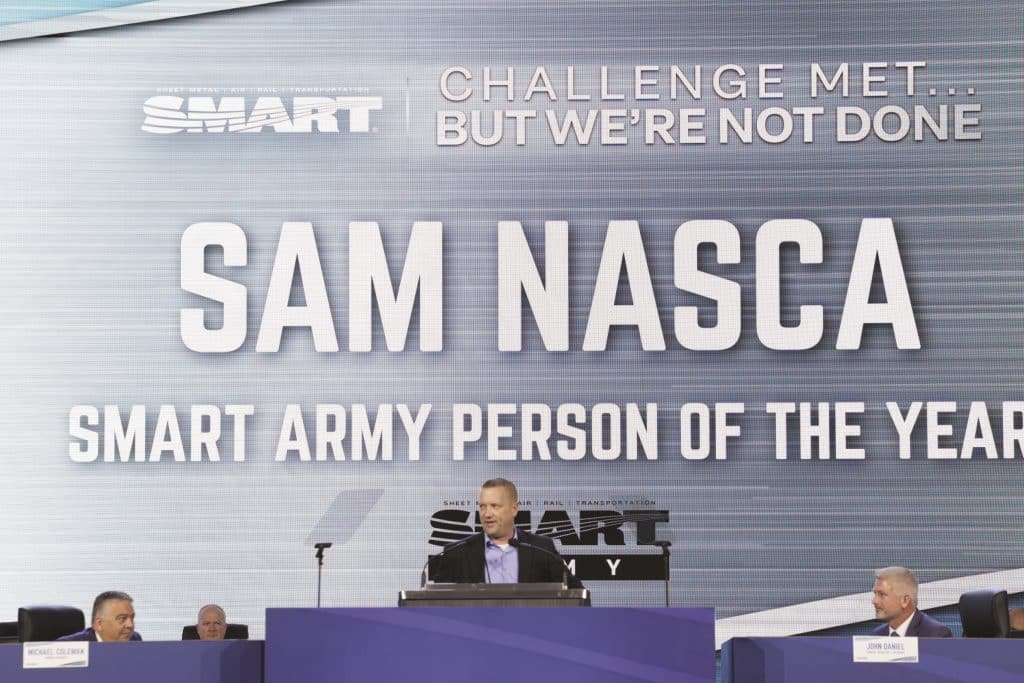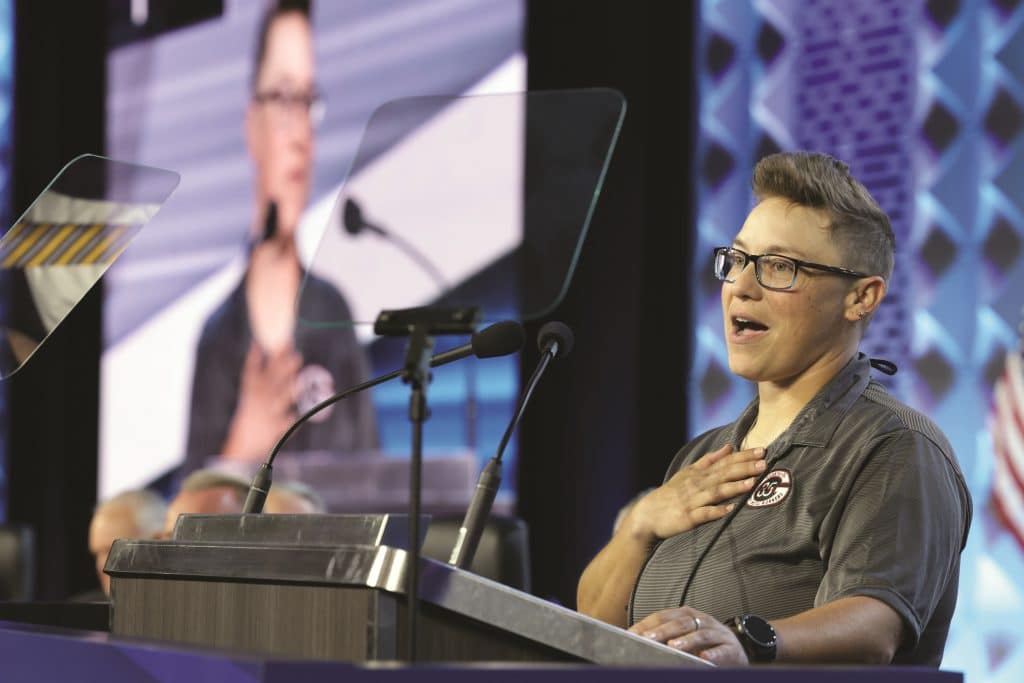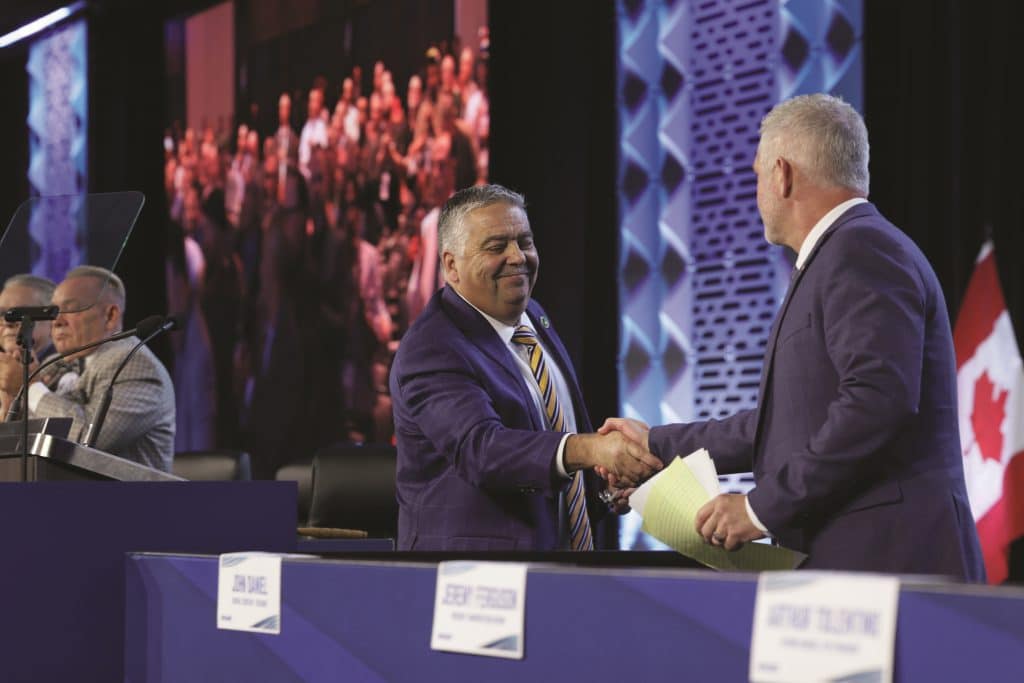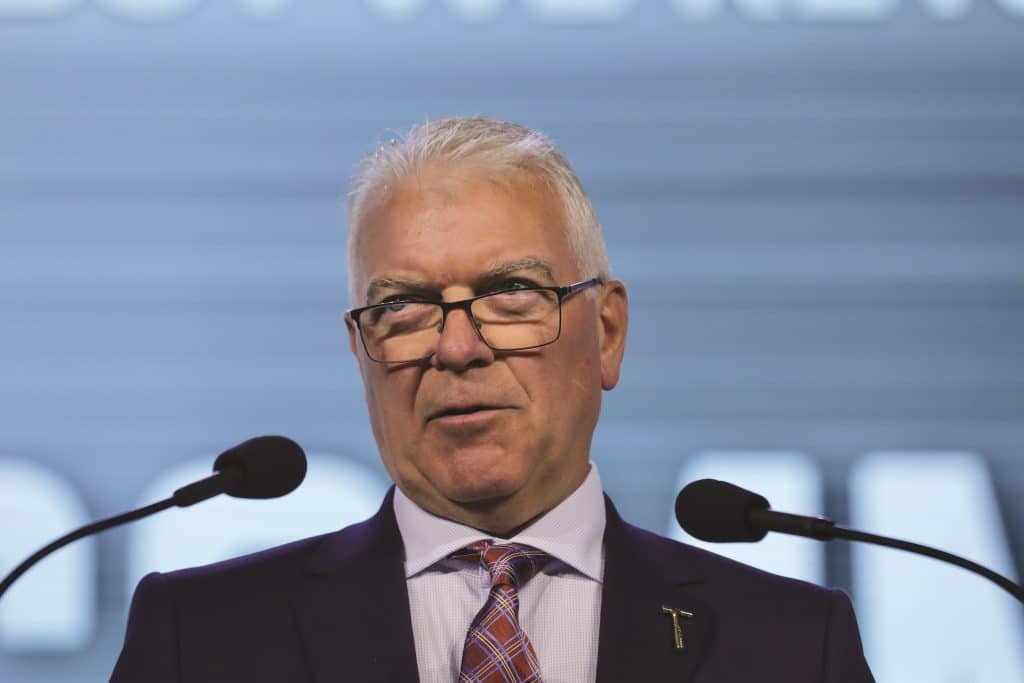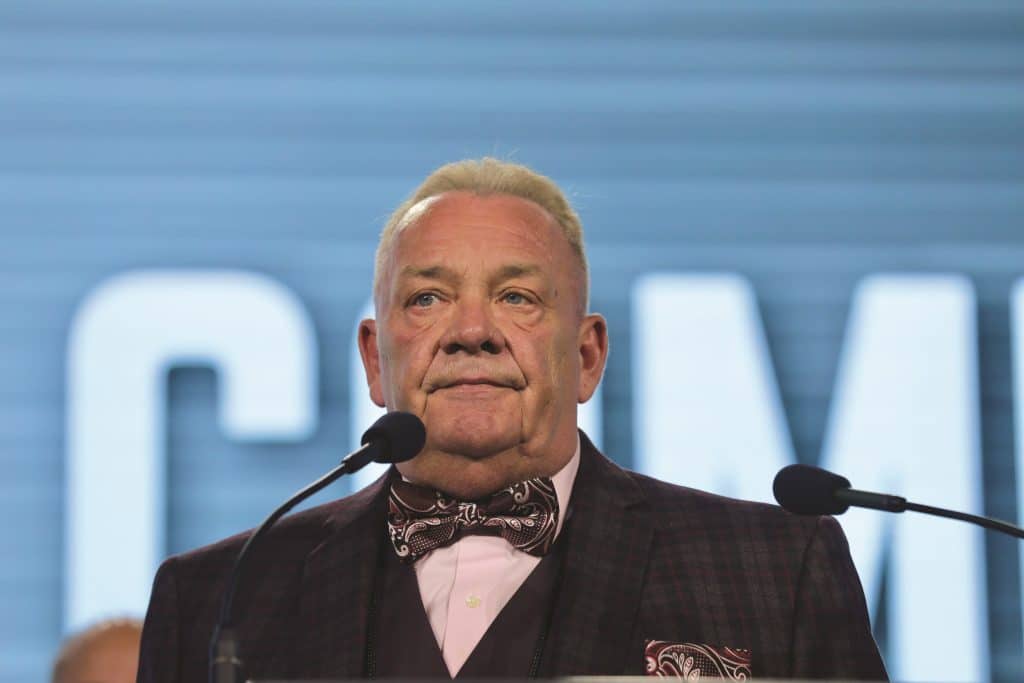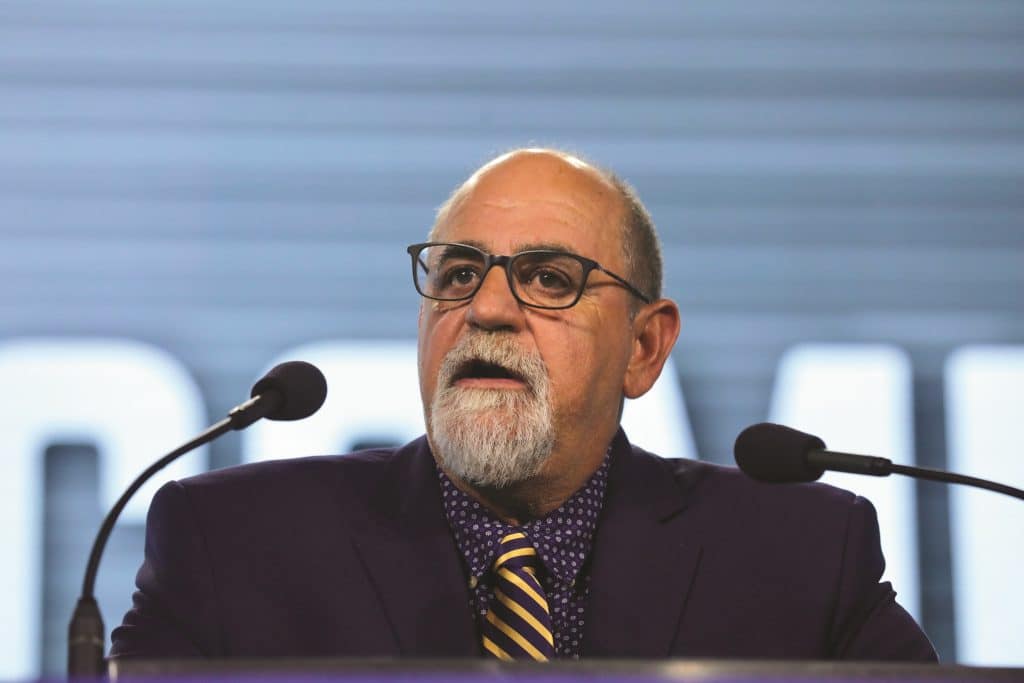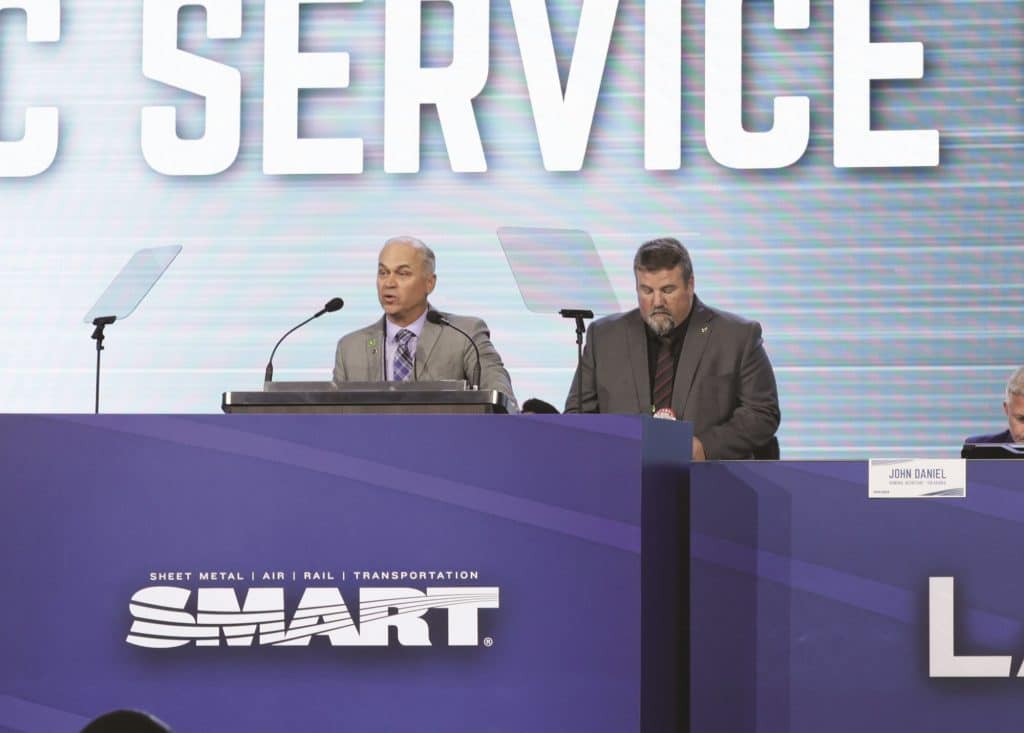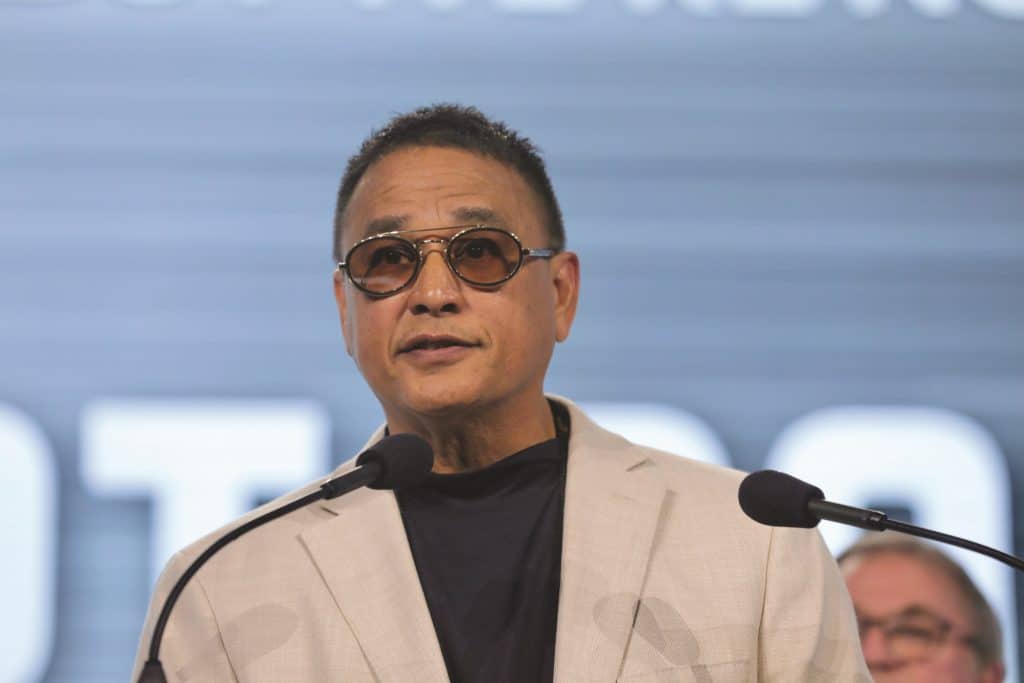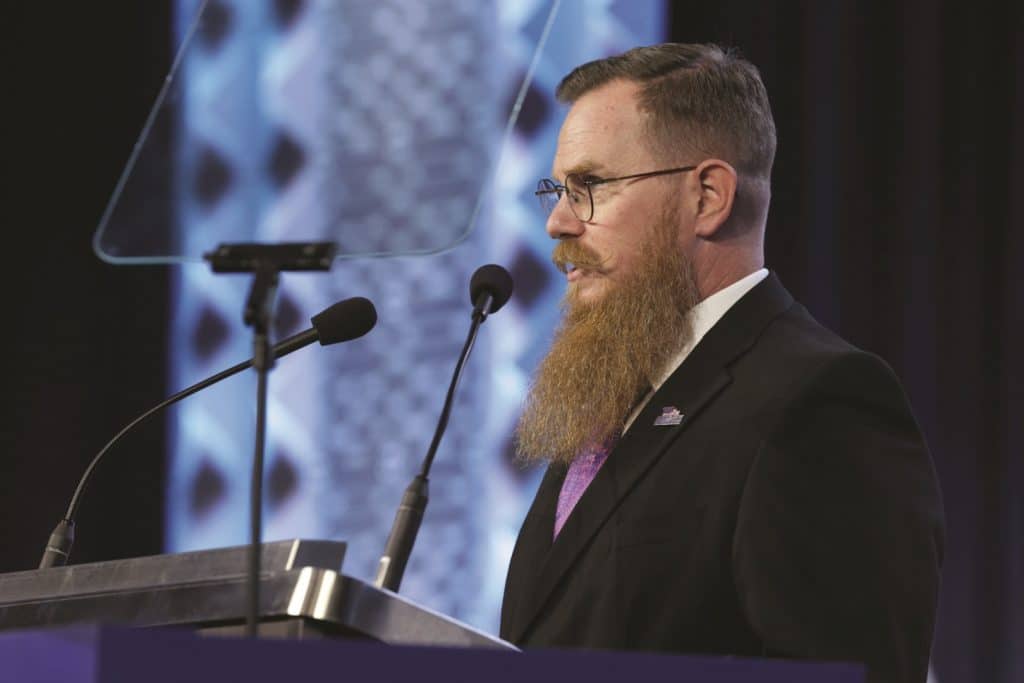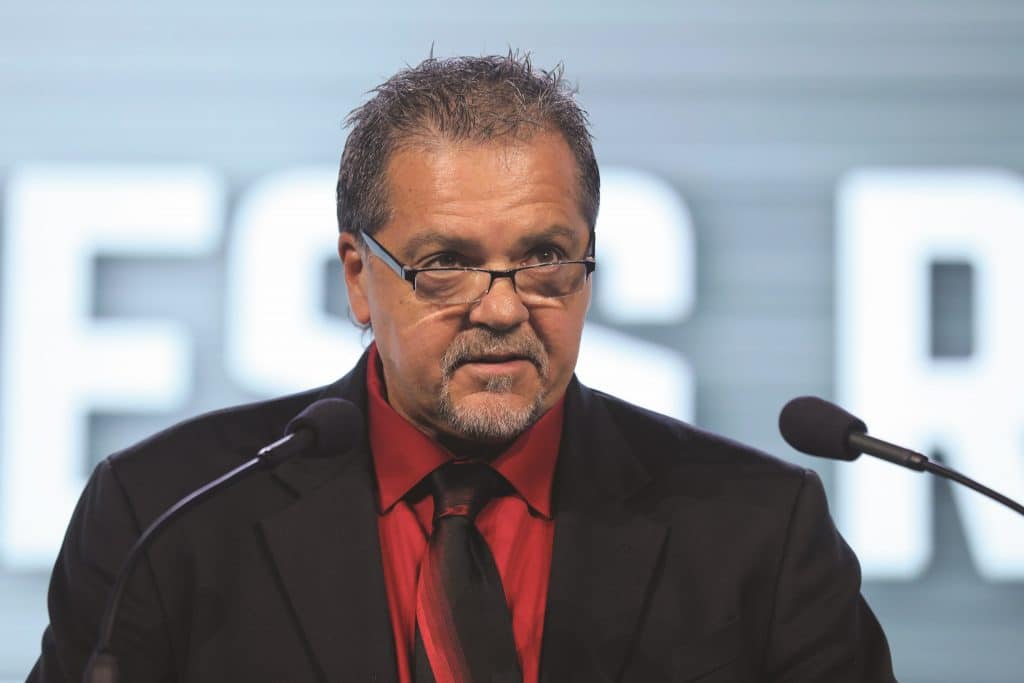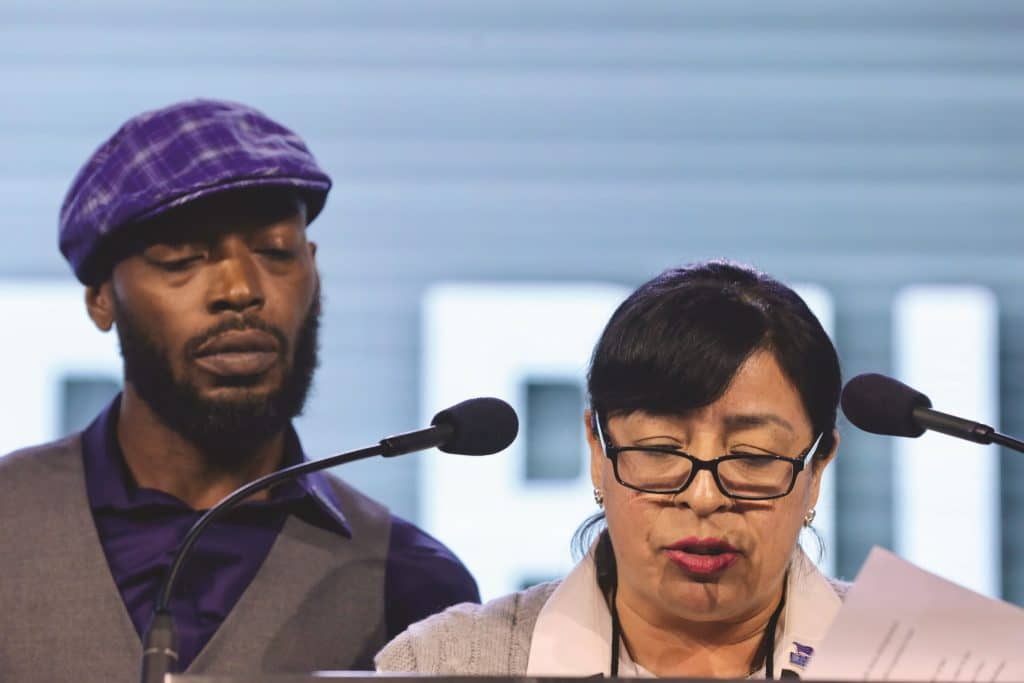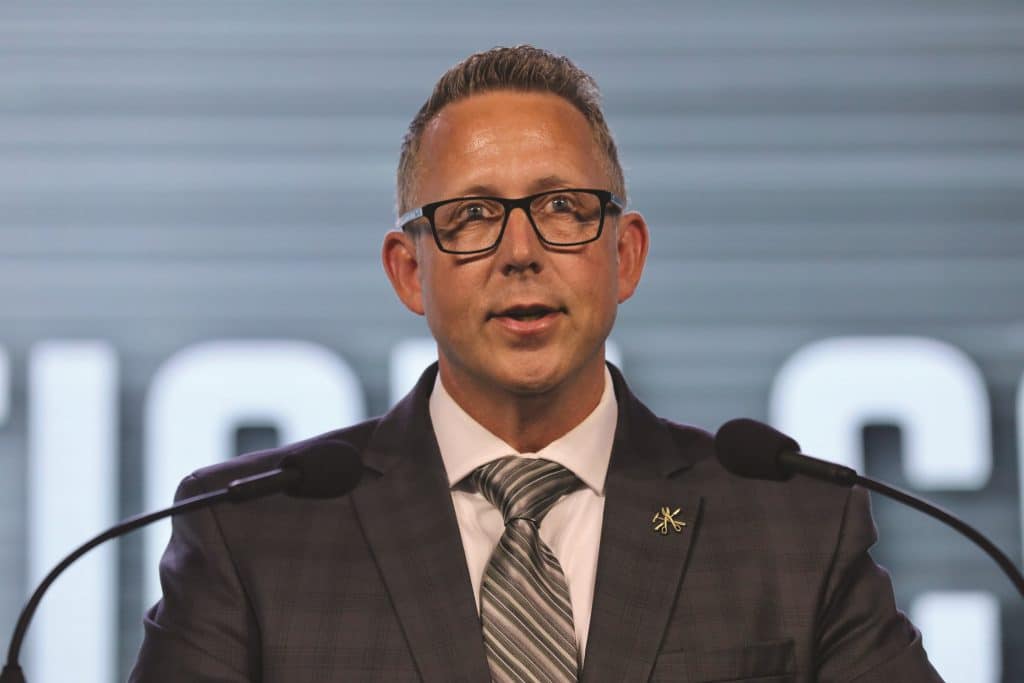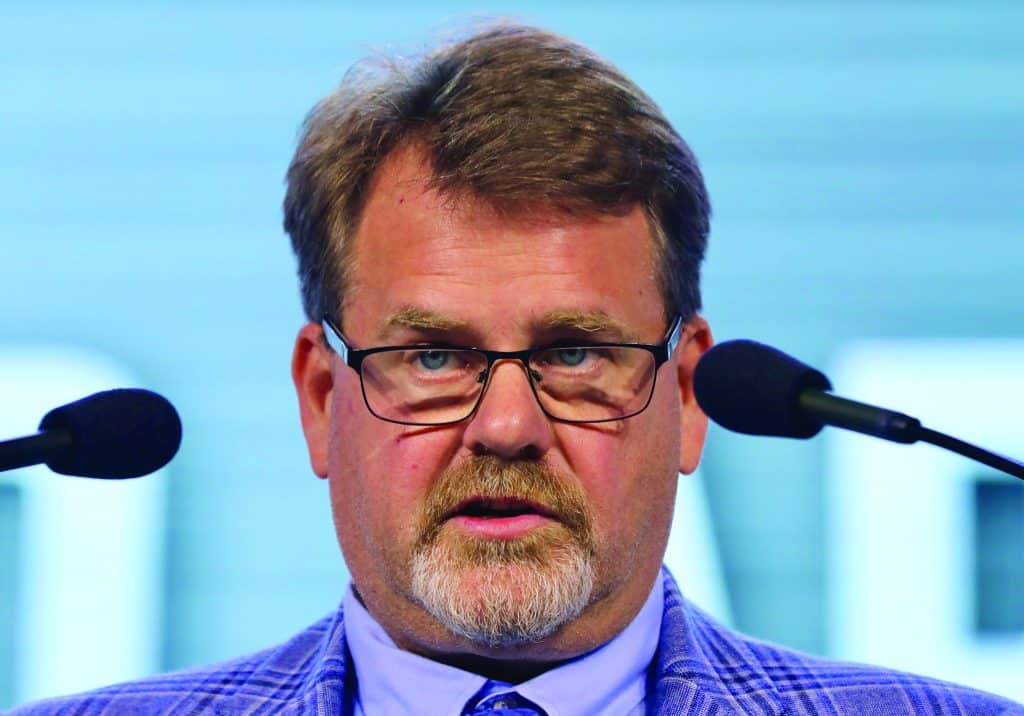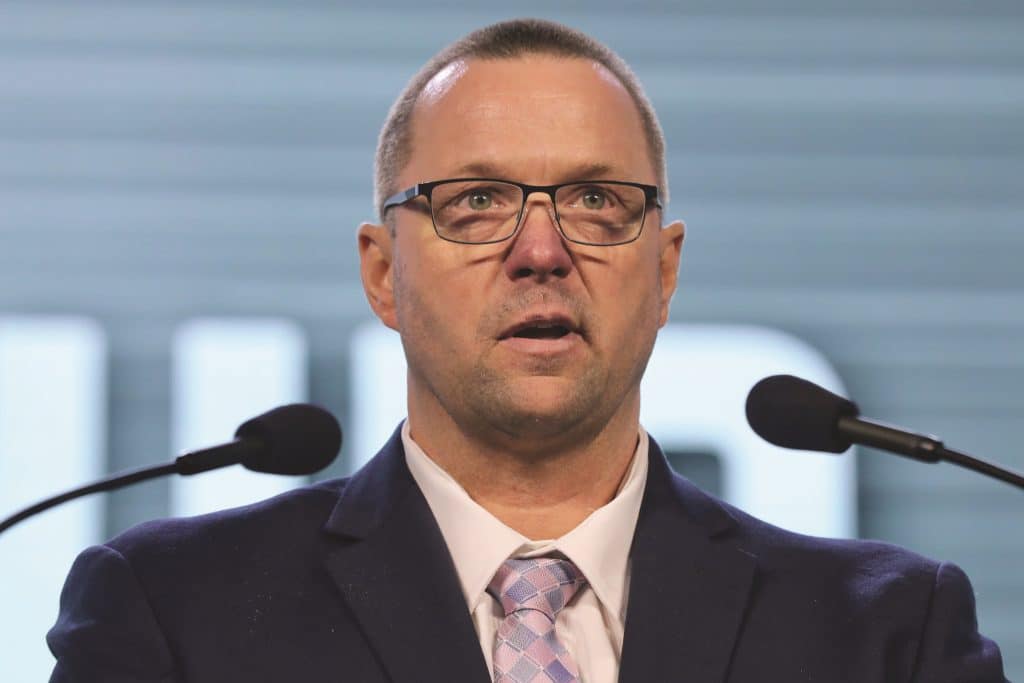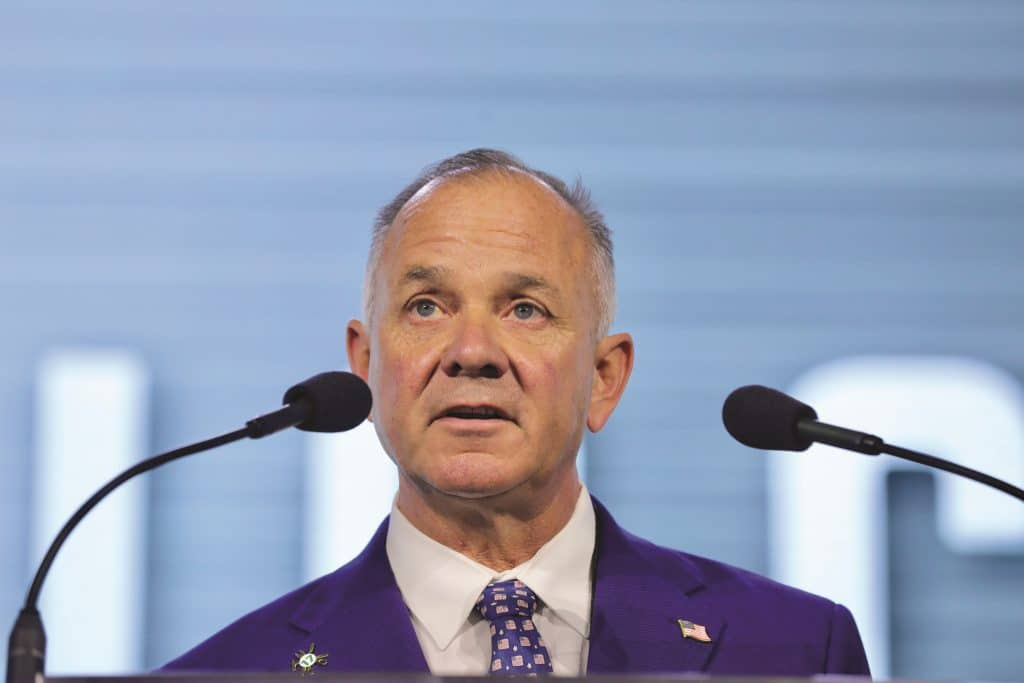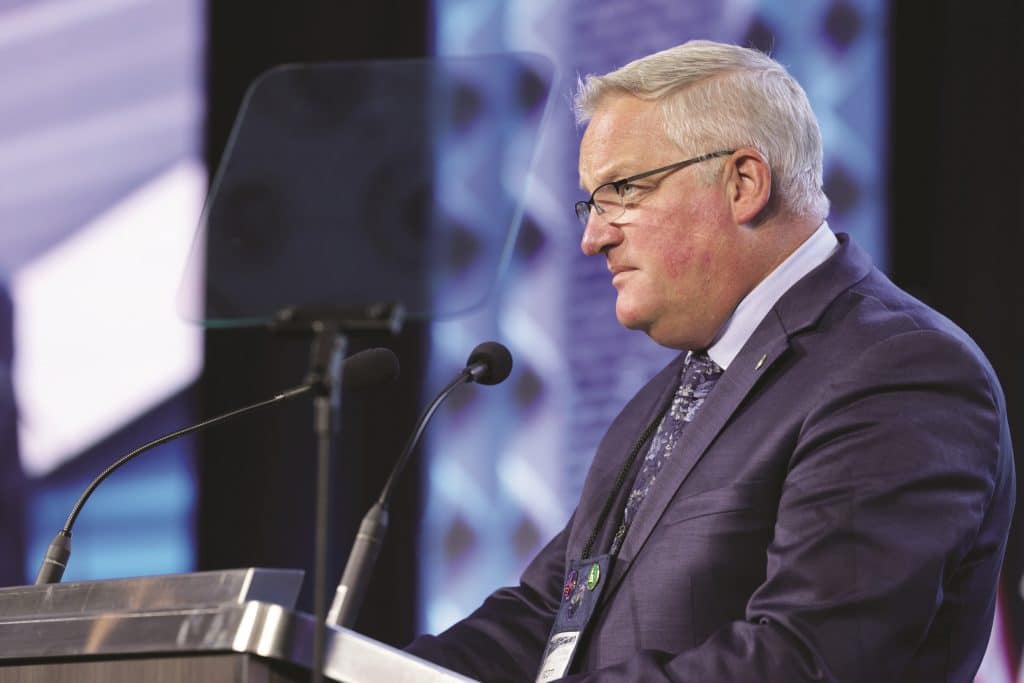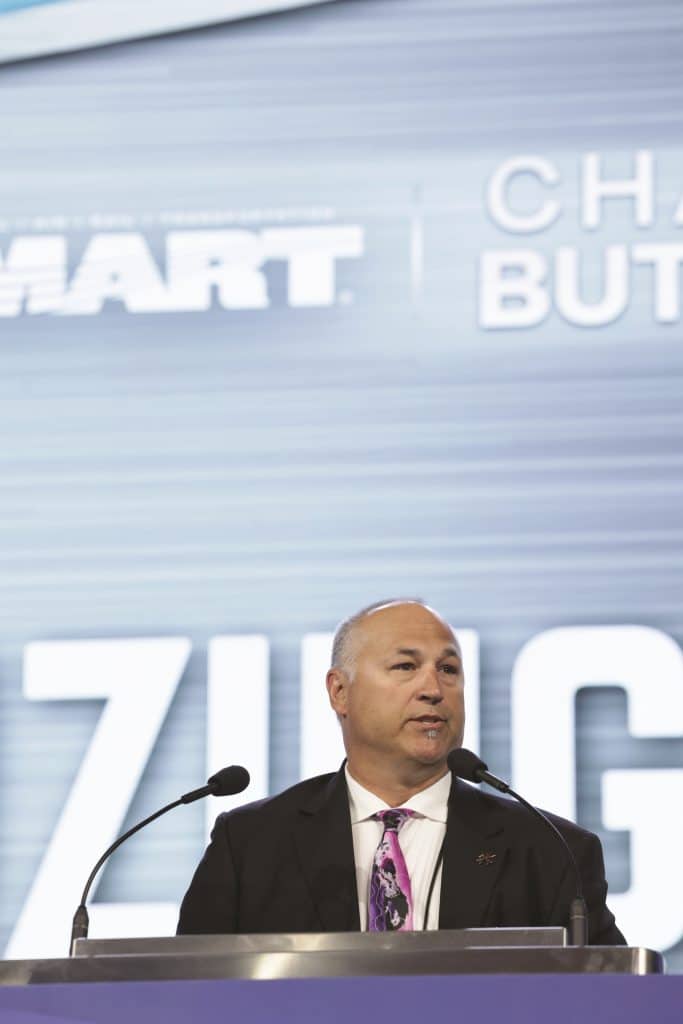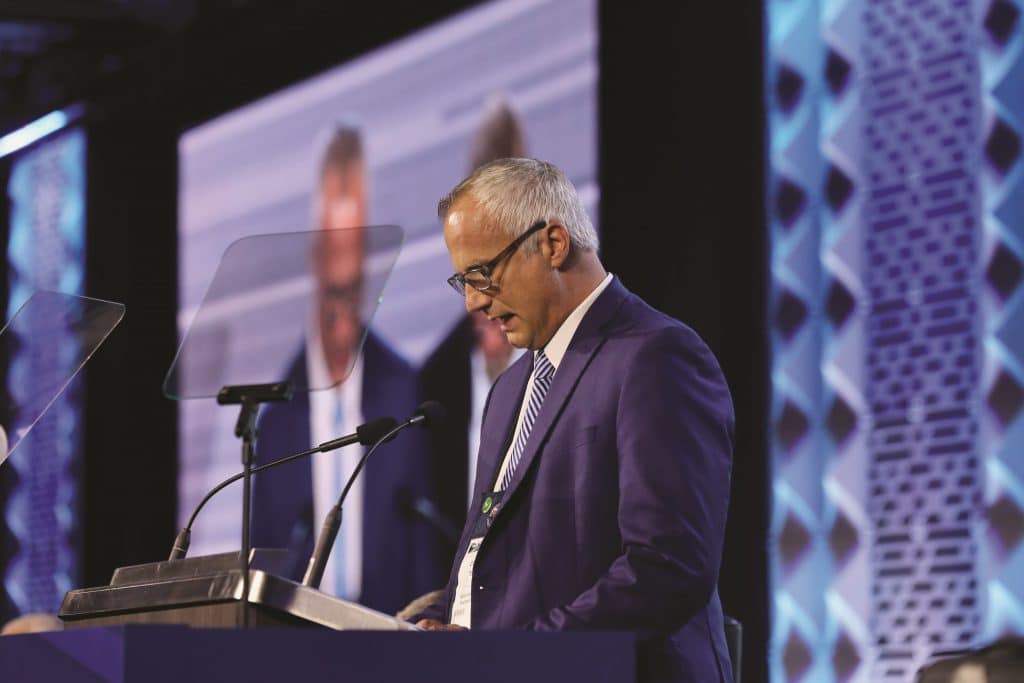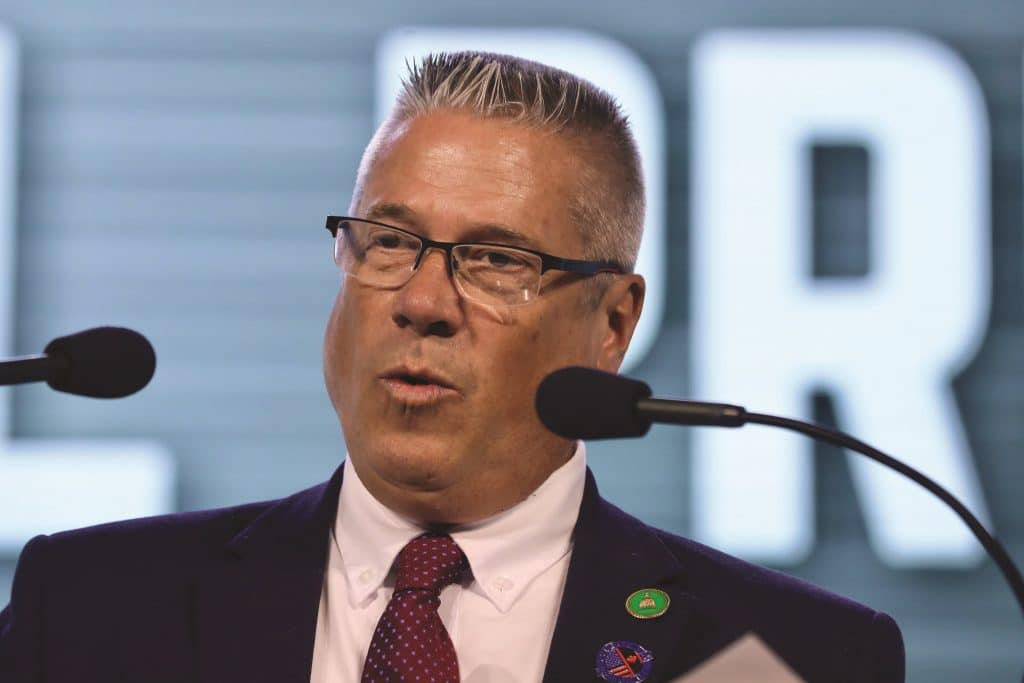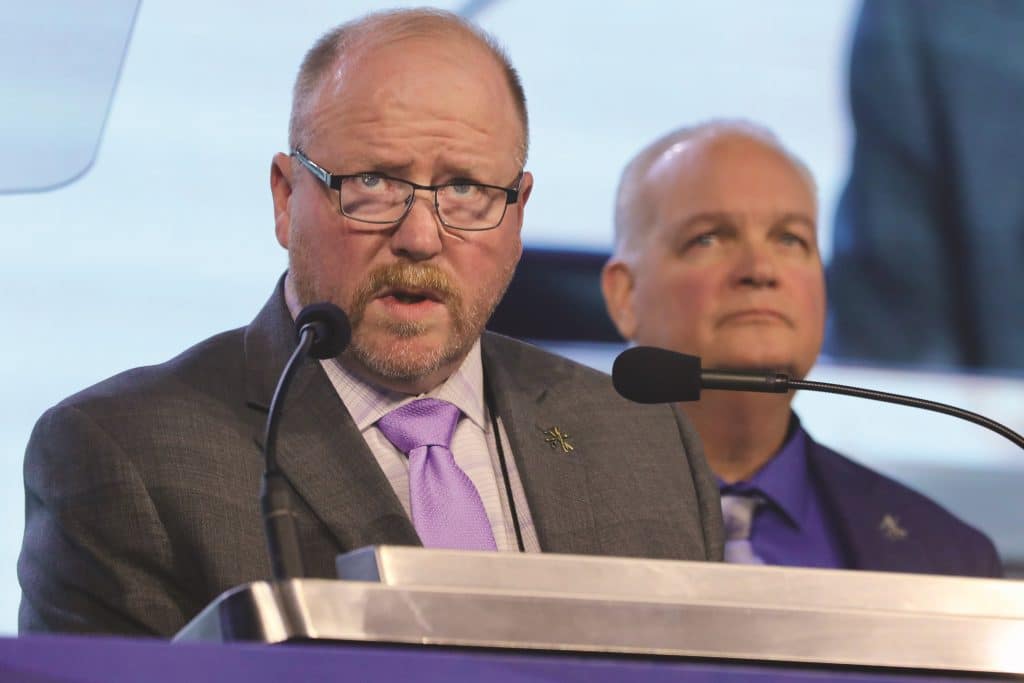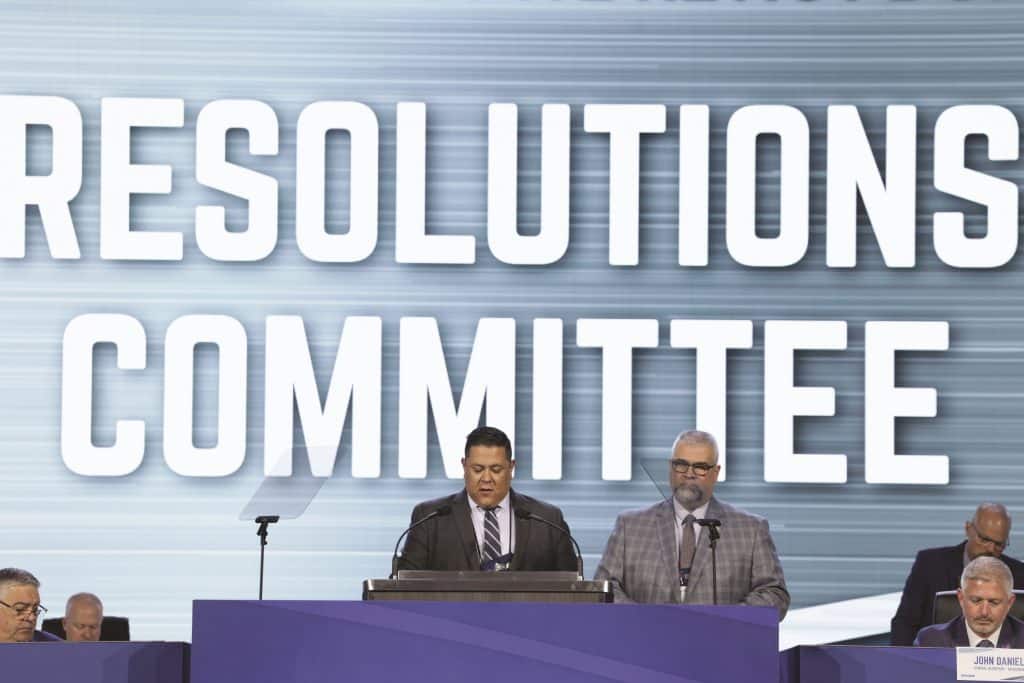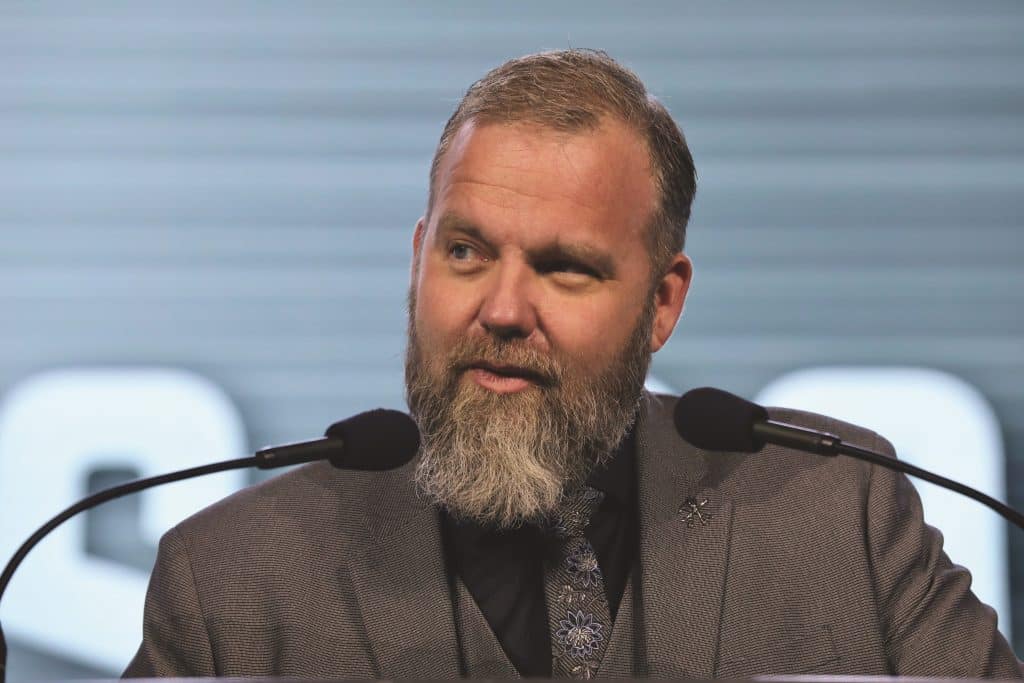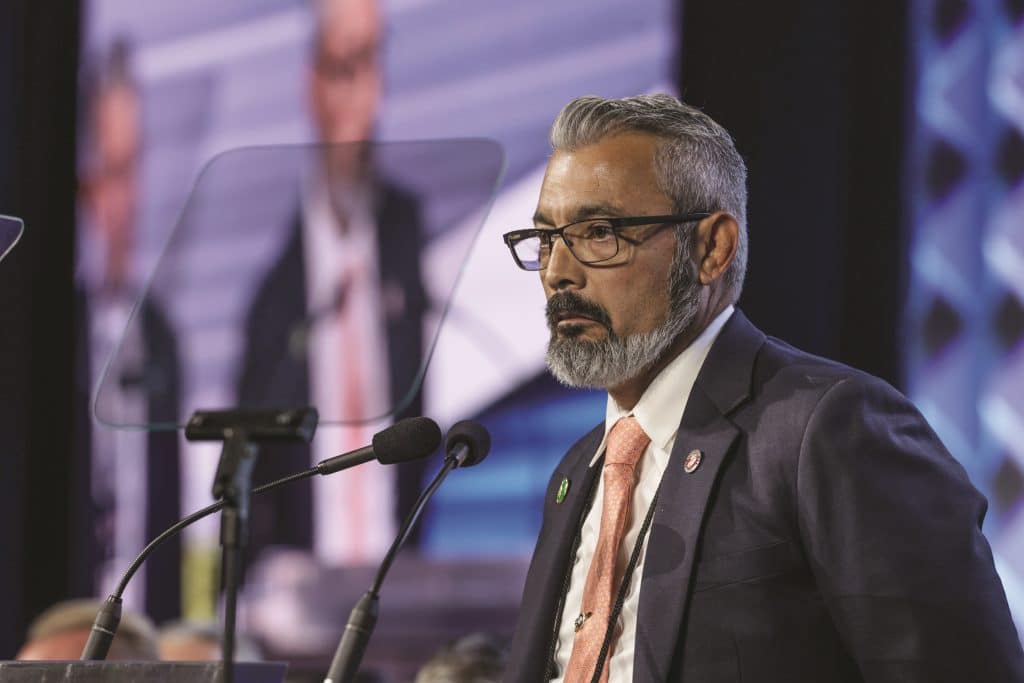Jeremy Ferguson of Local 313 (Grand Rapids, Mich.) was reelected as president of SMART-TD on Sunday, August 11, by delegates to the Third TD Convention.
His second five-year term as the leader of the United States’ largest railroad and transit union begins Oct. 1, where he will continue to lead the fight for the safety and just treatment of those he represents.
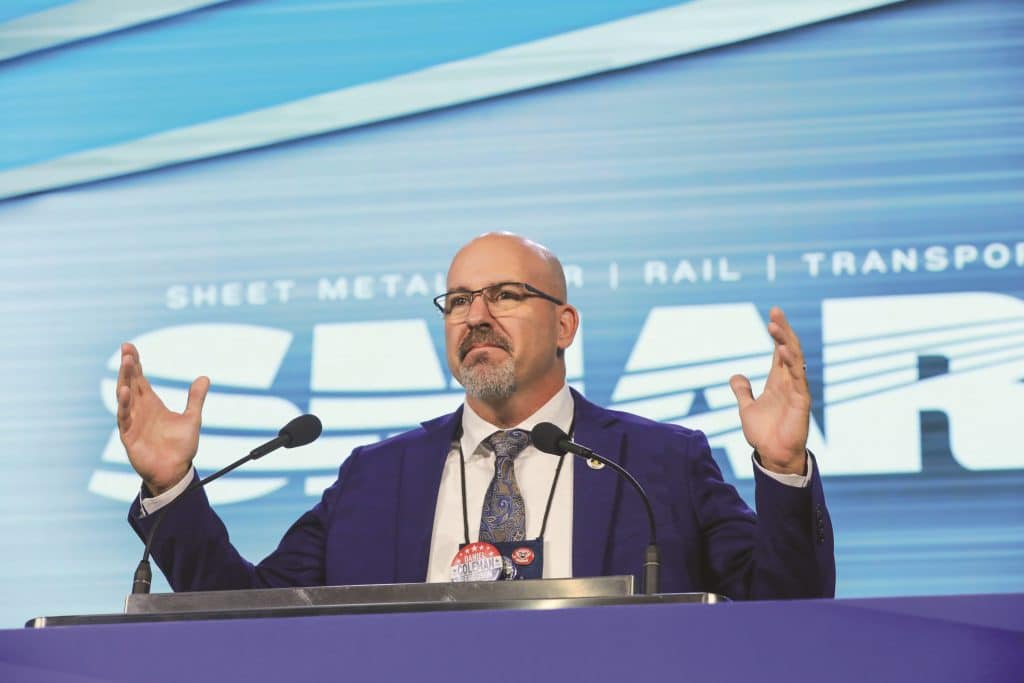
Ferguson reelected after five years of accomplishments
“We’ve been winning, and winning big time,” he said, speaking of SMART-TD’s results during his first term. “I’m proud of each and every one of [our members], and I’m proud of my team behind me. Thanks to your efforts, we still have two crewmembers on the train.
“This union is winning on all accounts, across the board, including in arbitration, negotiations and mediation. We are the best union out there and that’s not just my thinking, that is a fact.
“Since the freight carriers went to war against us on day two of my administration, we’ve been on the offense,” he said. “Since the cities, county agencies and transit companies started trying to put things over on our essential operators, we have met them with strength.”
Transit union focused on assault prevention
Under Ferguson’s watch, SMART-TD formed the Bus and Transit Assault Prevention and Safety (BTAPS) Committee, which is dedicated to stopping the epidemic of violence transit members face. Created in July 2023, BTAPS has made progress increasing the penalties for assaulting transportation workers. BTAPS is also negotiating to make working conditions for bus and transit workers safer through the installation of protective barriers and other measures.
Railroad union focused on safety and quality of life improvements
Ferguson was among the coalition of rail labor leaders who achieved paid sick time for railroad employees in 2022. Rail labor made considerable progress toward safety improvements during Ferguson’s first term, including the Federal Railroad Administration’s establishment of a two-person freight rail crew regulation.
Negotiations for the next national rail labor contract are scheduled to begin later this year.
Work ethic and integrity are Ferguson’s strengths
Don Zatteau, a delegate of Ferguson’s home local, made the initial nomination for Ferguson’s reelection. The motion received multiple seconds.
“His character and integrity are beyond reproach. His work ethic should be set as an example for this industry,” Zatteau said. “He lives and breathes this union, [it is] his heart and soul.”
Ferguson was challenged for the office by attorney Terry Smith, a member of Local 794 (Wellington, Kan.). Ferguson won reelection with 952 to 45 votes.
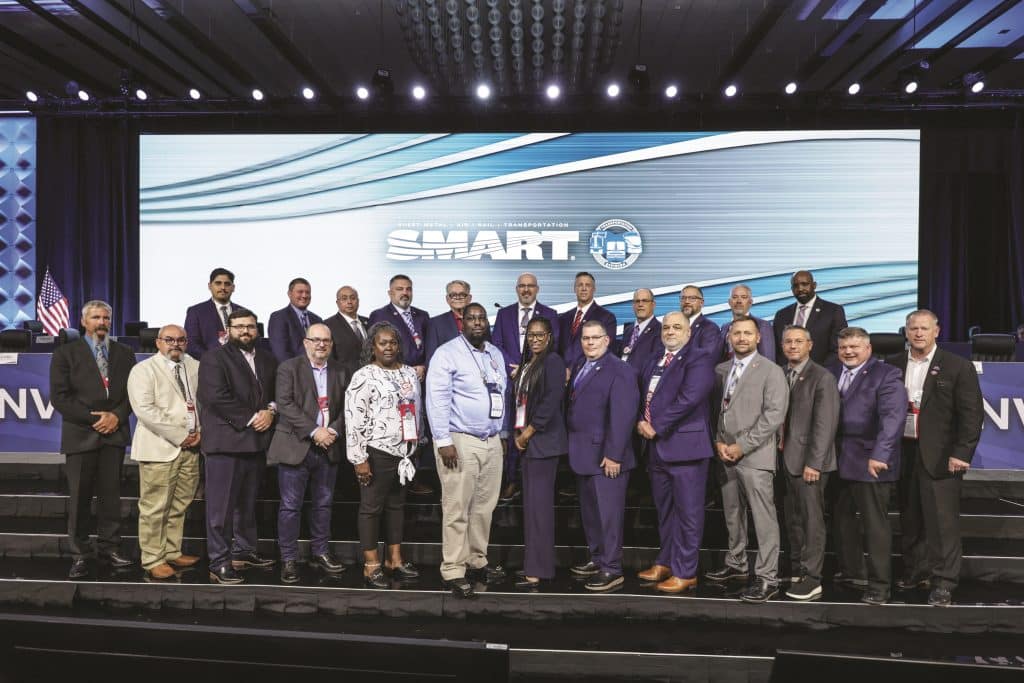
No changes among other top union officers
National Legislative Director Gregory Hynes (Local 1081, Phoenix, Ariz.) And Alternate National Legislative Director Jared Cassity (Local 1377, Russell, Ky.) Were also returned to their positions in uncontested elections.
All six rail Transportation Division vice presidents ran uncontested and were reelected by acclamation.
They are:
- Brent Leonard (Local 202, Denver, Colo.)
- Chad Adams (Local 331, Temple, Texas)
- Jamie Modesitt (Local 298, Garrett, Ind.)
- Joe Lopez (Local 794, Wellington, Kan.)
- Gary Crest (Local 807, Tucson, Ariz.)
- Dave Wier Jr. (Local 469, Madison, Ill.)
Leonard was also returned to the successor president position by acclamation.
“We’ve defied expectations and proven our resilience,” he said.
Bus incumbents defeat challengers
SMART-TD Bus Department Vice President Alvy Hughes (Local 1596, Charlotte, N.C.) was challenged by Manuel Martinez of Local 1608 (Chatsworth, Calif.). Hughes won the election, 896–104.
SMART-TD Bus Department Vice President James Sandoval (Local 23, Santa Cruz, Calif.) was challenged by Alt. Vice President Richard Finley of Local 1558 (Bergenfield, N.J.). Sandoval retained his seat, 939-58.
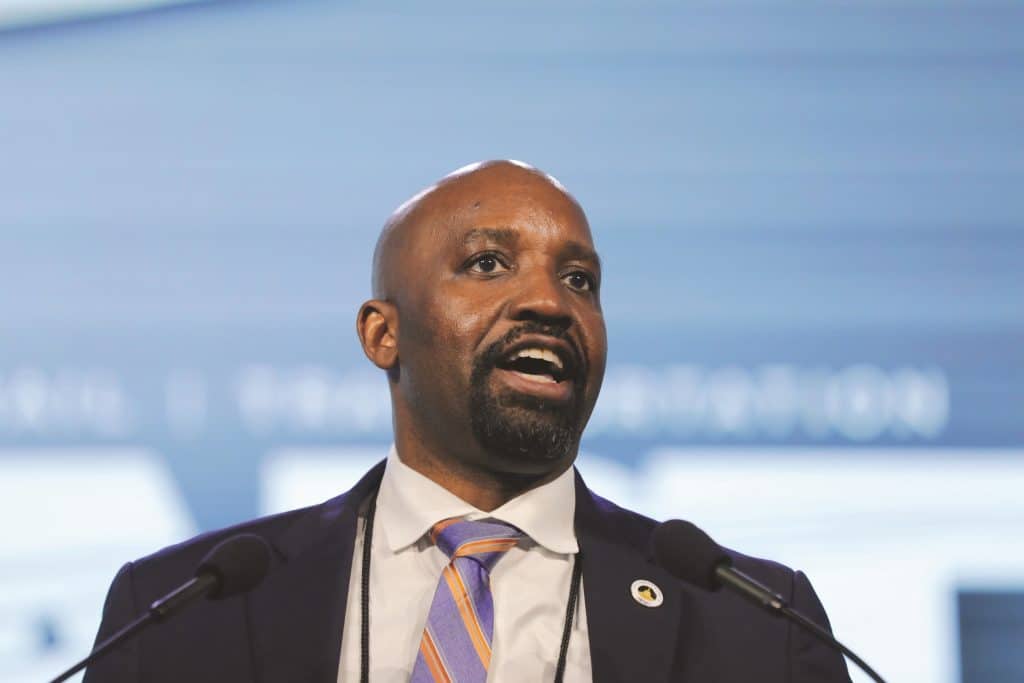
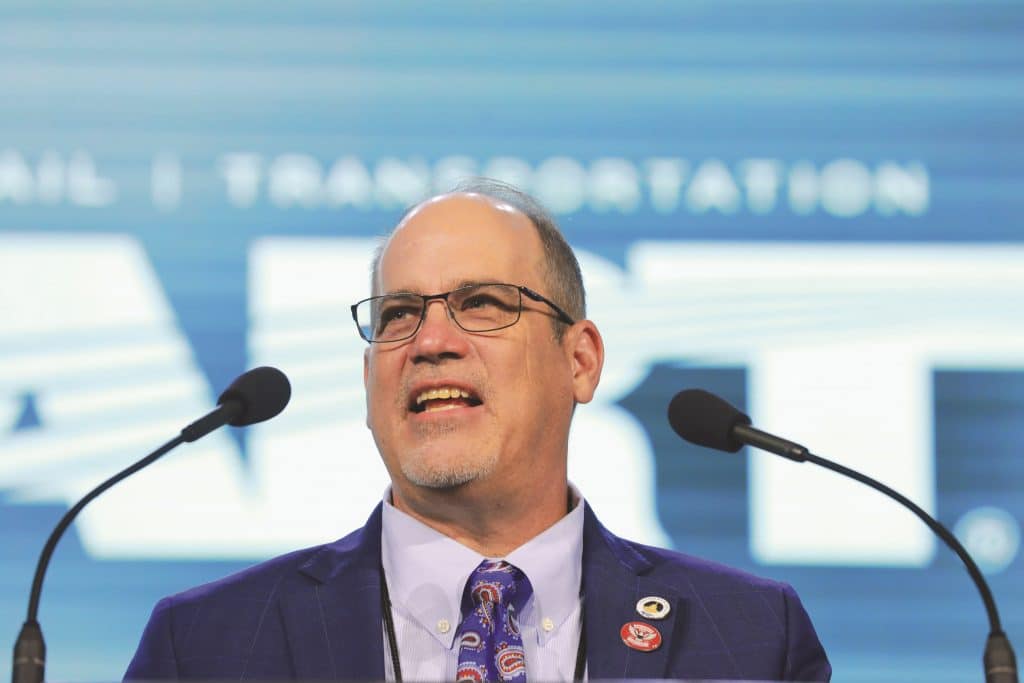
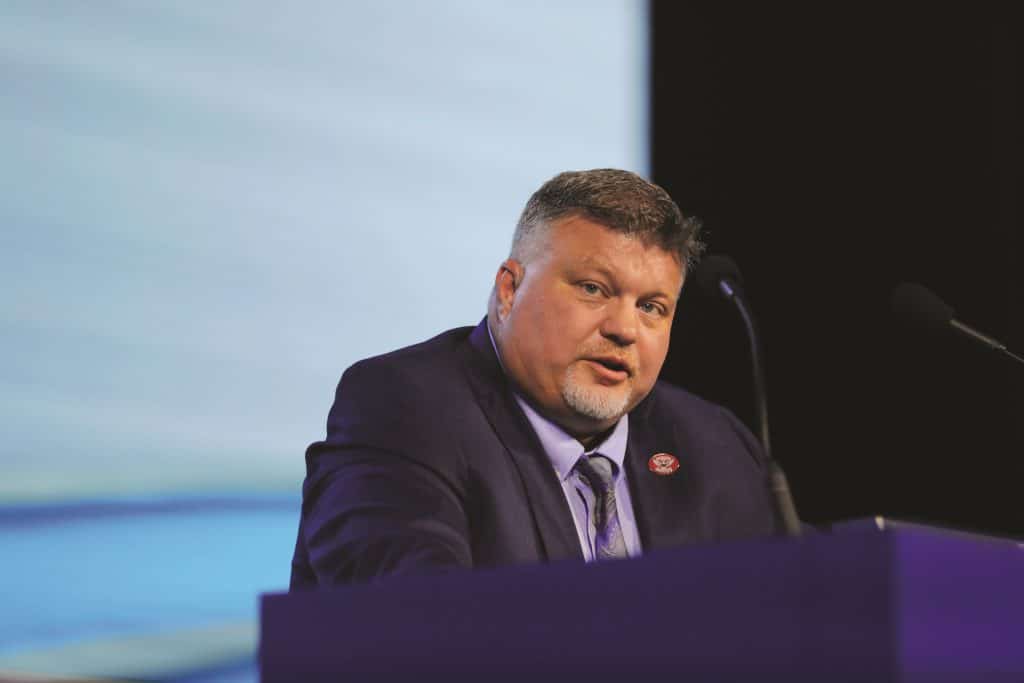
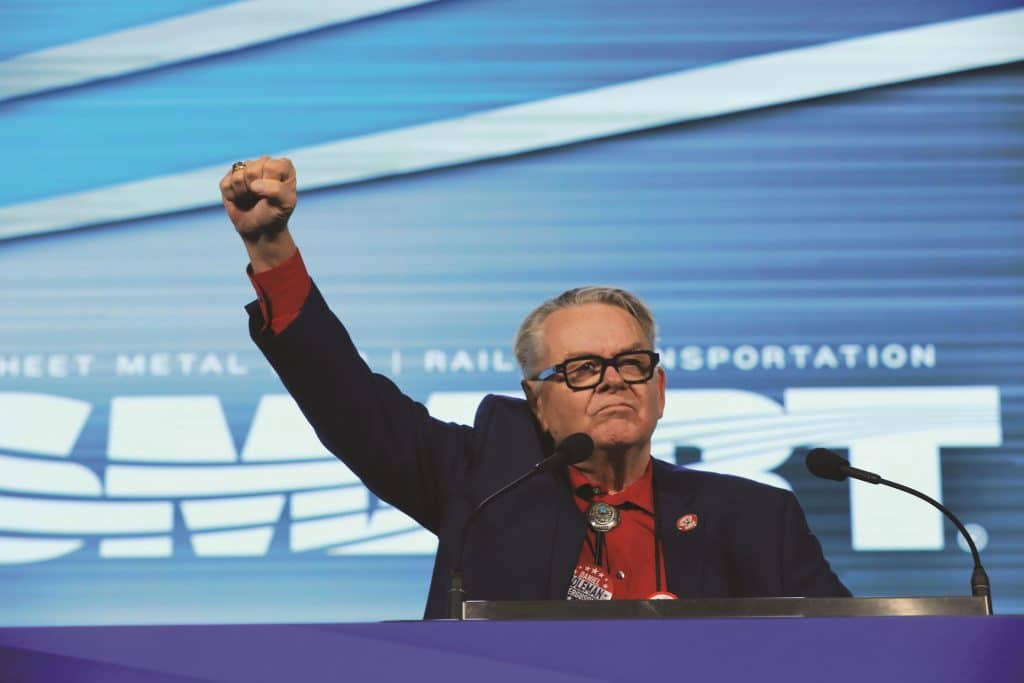
Cassity returned by acclamation
Alternate National Legislative Director Jared Cassity was reelected by acclamation.
“Our issues are not political — they’re either right or they’re wrong,” Cassity said, addressing the nation’s divided political climate that hinders progress on workers’ issues. “In this room, there are no political adversaries. Our issues are our issues and worth fighting for. Do not let someone else drive a wedge between you!”
Bus Alternate Vice Presidents
Anthony Petty of Local 1594 (Upper Darby, Pa.) was elected to Bus Department Alternate VP — East by acclamation.
“I’m going to hit the ground running,” Petty said. “For the bus membership, we are going to be stronger. I’m proud to be part of this team.”
Incumbent Alt. Vice President — West Markeisha Haynes of Local 1785 (Santa Monica, Calif.) Faced a challenge from longtime LACMTA bus operator Pedro “Pete” Lara of Local 1563 (El Monte, Calif.) and won the vote, 861–126.
Rail Alternate Vice Presidents Alt. Vice President
Anthony Simon (Local 645, Babylon, N.Y.) announced his retirement from the position of alternate vice president, creating a vacancy. GCA-721 General Chairperson Thomas Behsman of Local 64 (Waseca, Minn.), who works for CPKC, and GCA-270 General Chairperson Edward W. “Chip” Waugh of Local 1258 (Elgin, Ill.), who works on Metra, both sought to join the incumbent Transportation Division’s leadership, which included:
- Scott Chelette (Local 1337, New Orleans, La.)
- Larry Miller Jr. (Local 1841, Klamath, Ore.)
- Chris Bartz (Local 1976, St. Paul, Minn.)
- Tommy Gholson (Local 573, Danville, Ky.)
- Luke Edington (Local 286, North Platte, Neb.)
The final vote tally saw Waugh joining the five incumbents.
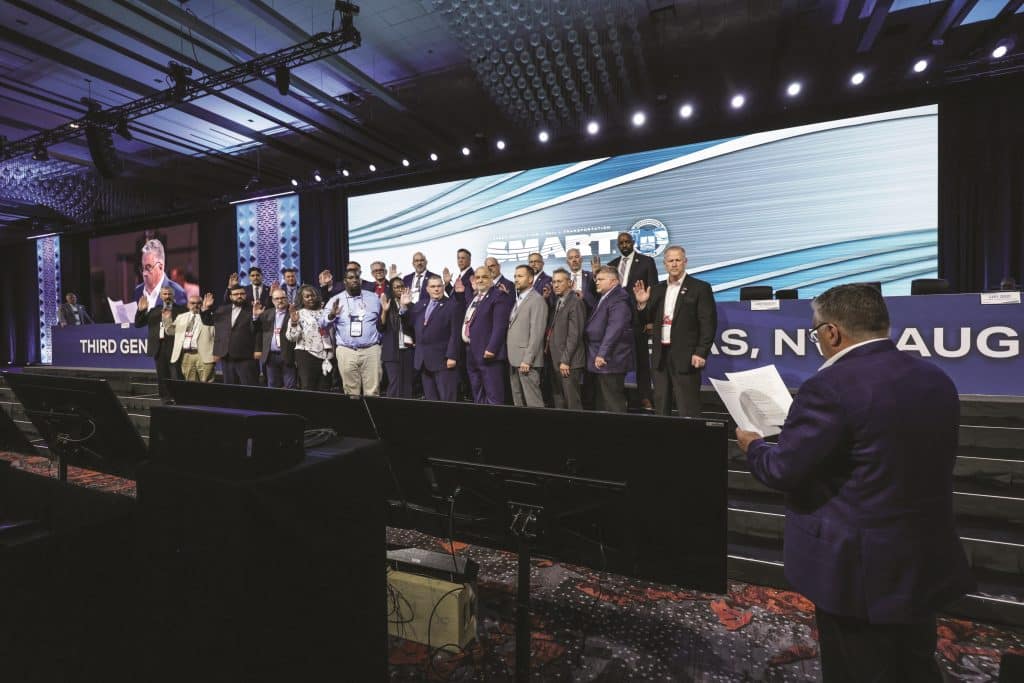
Two new faces on SMART-TD Board of Appeals
Three incumbents on the SMART-TD Board of Appeals were returned to the board by acclamation. They are:
- Tony McAdams (Local 1092, Teague, Texas), Road Service
- Kevin Smith (Local 1813, Colton, Calif.), Yard Service
- Tim Flynn Jr. (Local 832, Superior, Wis.), Engine Service
Brenda Moore (Local 1715, Charlotte, N.C.) retired from her role as the Bus Department’s representative on the Board of Appeals, and Rick Pauli did not run for reelection as the Commuter representative, leaving room for two new faces on the board.
Christine Ivey (Local 1785, Santa Monica, Calif.) ran unopposed as Moore’s replacement, and an election was held for two candidates for the Commuter Board of Appeals vacancy.
LCA-769A Chairperson Cole Czub of Local 898 (Boston, Mass.), a member of the BTAPS Committee, faced LCA-769 Chairperson Mike Buckley of Local 838 (Philadelphia, Pa.) and won the election.
Czub and Ivey assume their new roles Oct. 1.
Members made this convention happen
A special note of thanks to the hard-working members of SMART Local 137 in New York City, Local 540 in Mississauga, Ontario, Canada, and Local 88 in Las Vegas, whose dedication and labor helped make the Third SMART General Convention a success.
Since early 2024, workers in production facilities represented by Local 540 have worked tirelessly to produce a variety of convention apparel. From Transportation Division-branded hats to the SMART tablet bags provided to delegates, these SMART sisters and brothers sewed union pride and craftsmanship into the fabric of the convention.

Local 88 members Jamal Johnson and Jorge Hernandez-Gutierrez worked in close collaboration throughout the convention with SMART staff across departments, handling logistics and preparing for a smooth convention.
Finally, as in years past, all the convention signage in Las Vegas was fabricated by Local 137 apprentices and volunteer journeyworkers like Michael Viviano. Working night and day through several weekends, these members created all the directional signage for use at the convention, member images as well as the ceremonial gift check that was presented to our designated charity, the United Labor Agency of Nevada (ULAN). The volunteers who gave up their weekends to make the signs include Bryan Barahona, Dillon Franzese, Thomas Navarro, Robert Blood and Local 137 Financial Secretary-Treasurer and JATC Coordinator Pete Scaglione. Brothers Viviano and Scaglione have produced signage for SMART conferences and conventions for more than 15 years.
On behalf of all delegates, members and honored guests at the Third SMART General Convention: Thank you, brothers and sisters, for all that you do!
